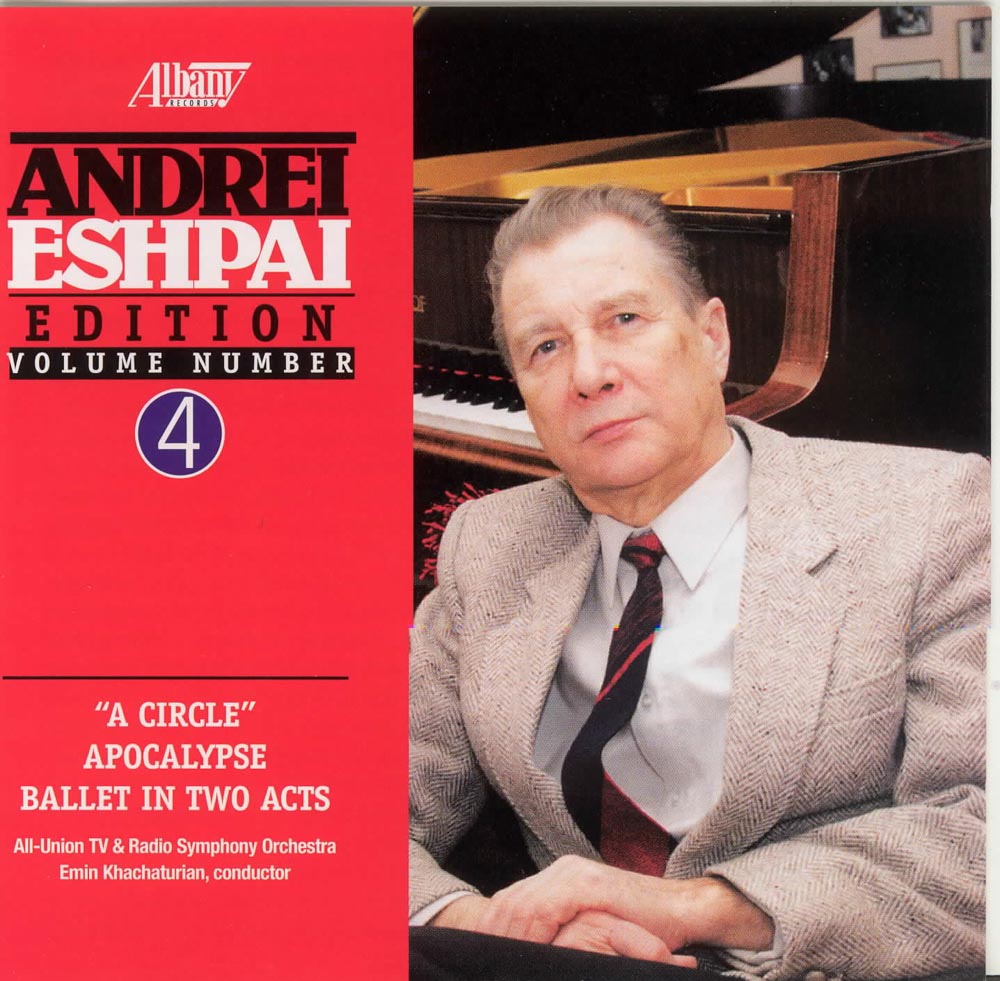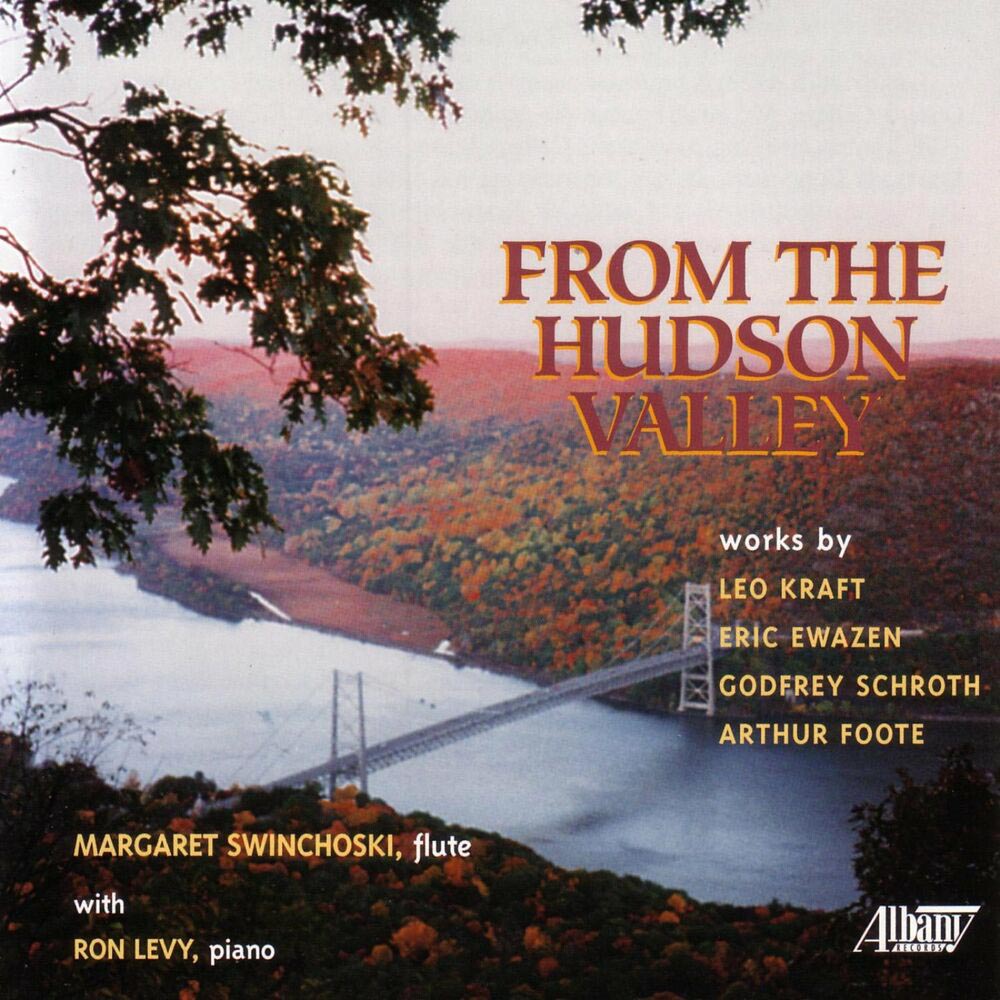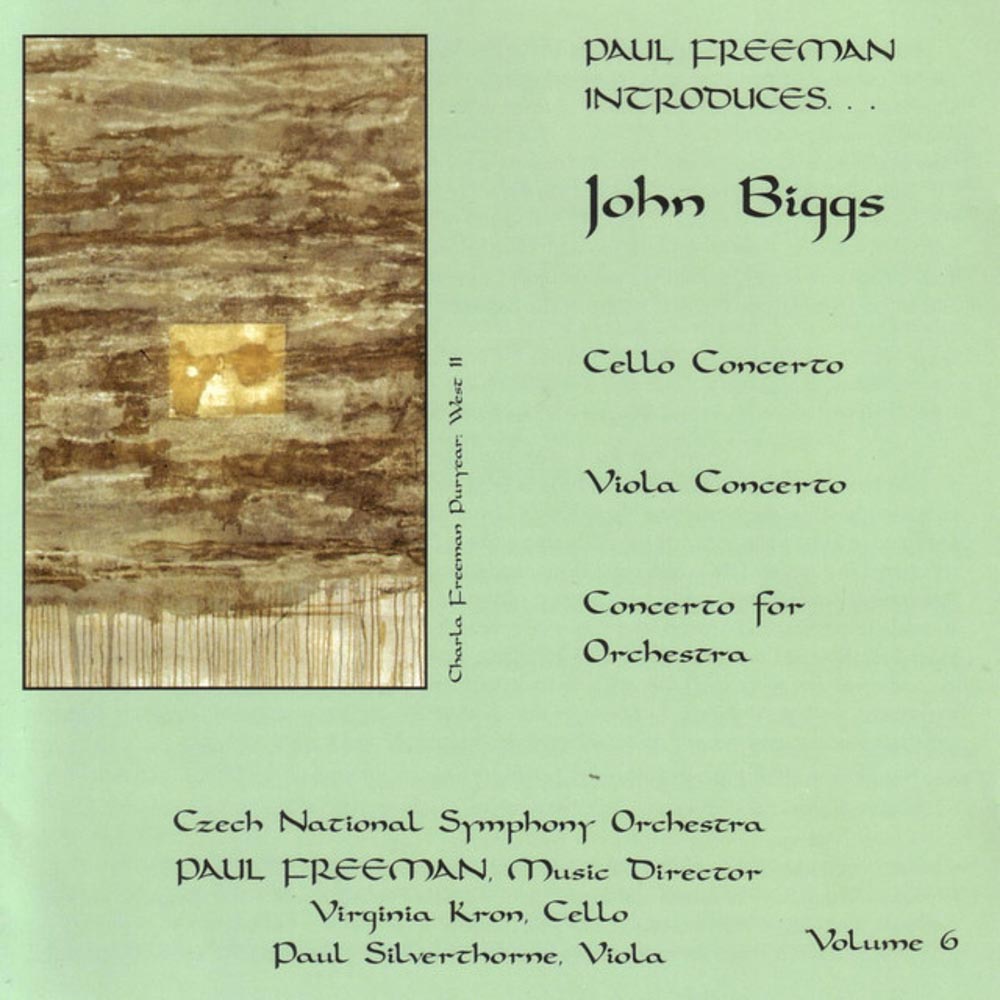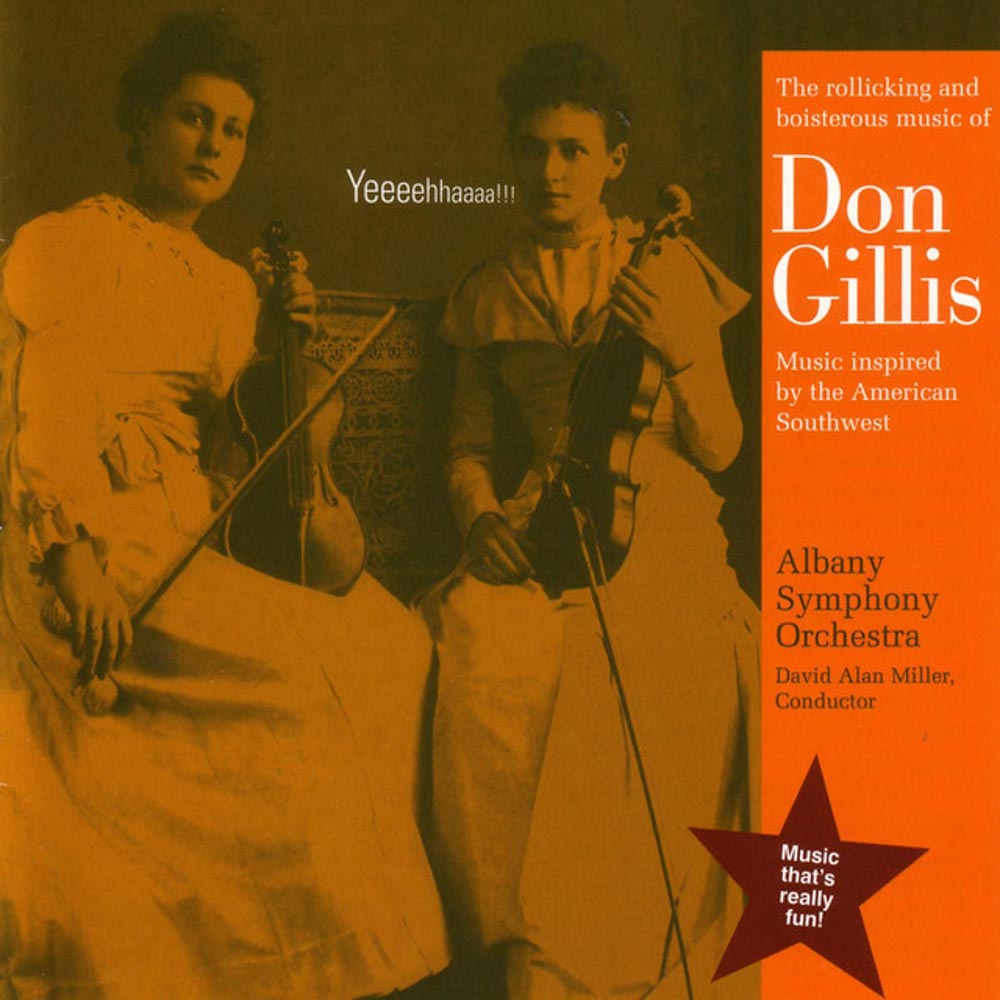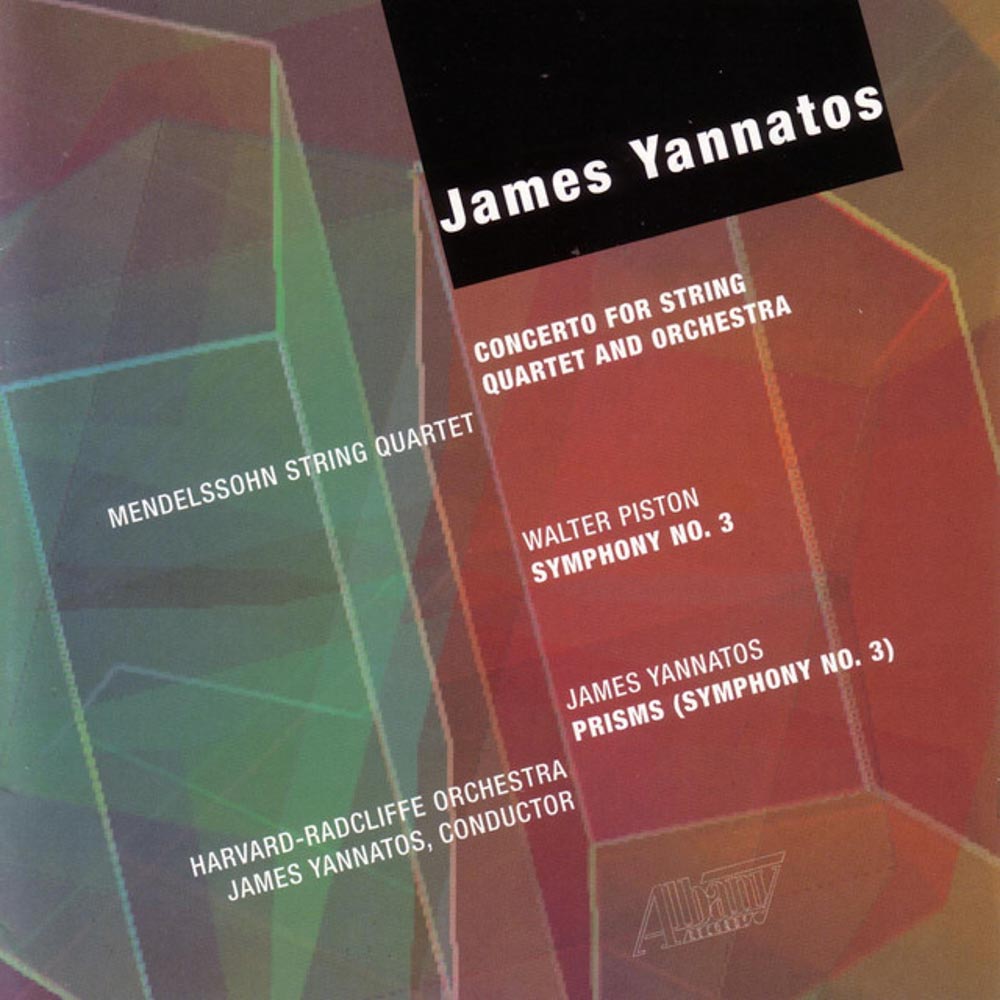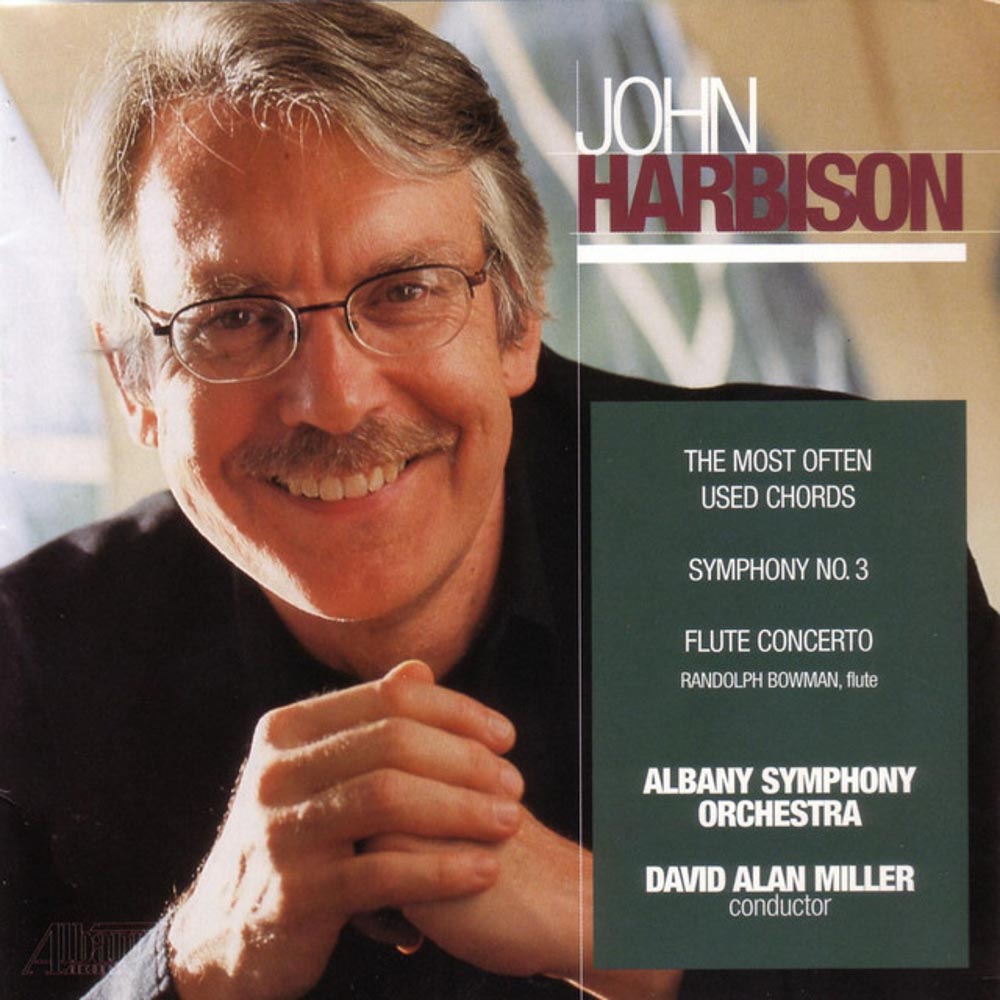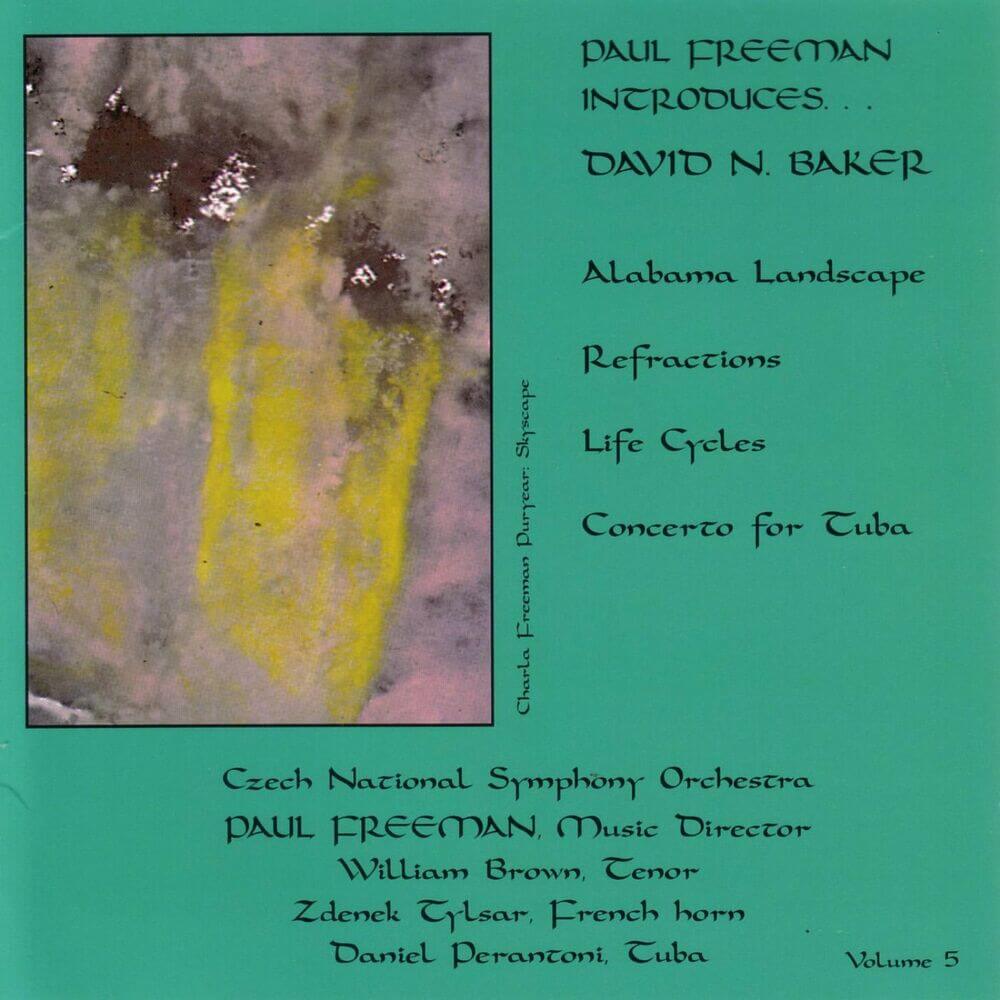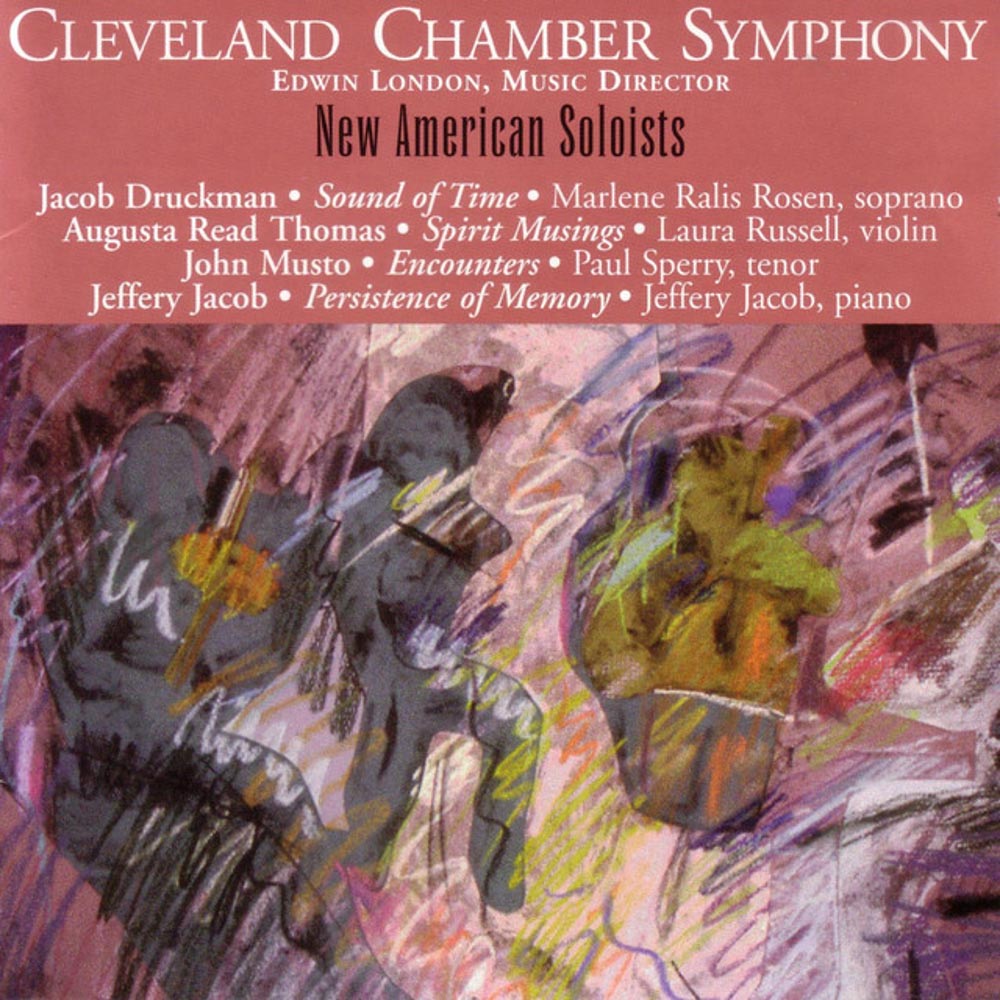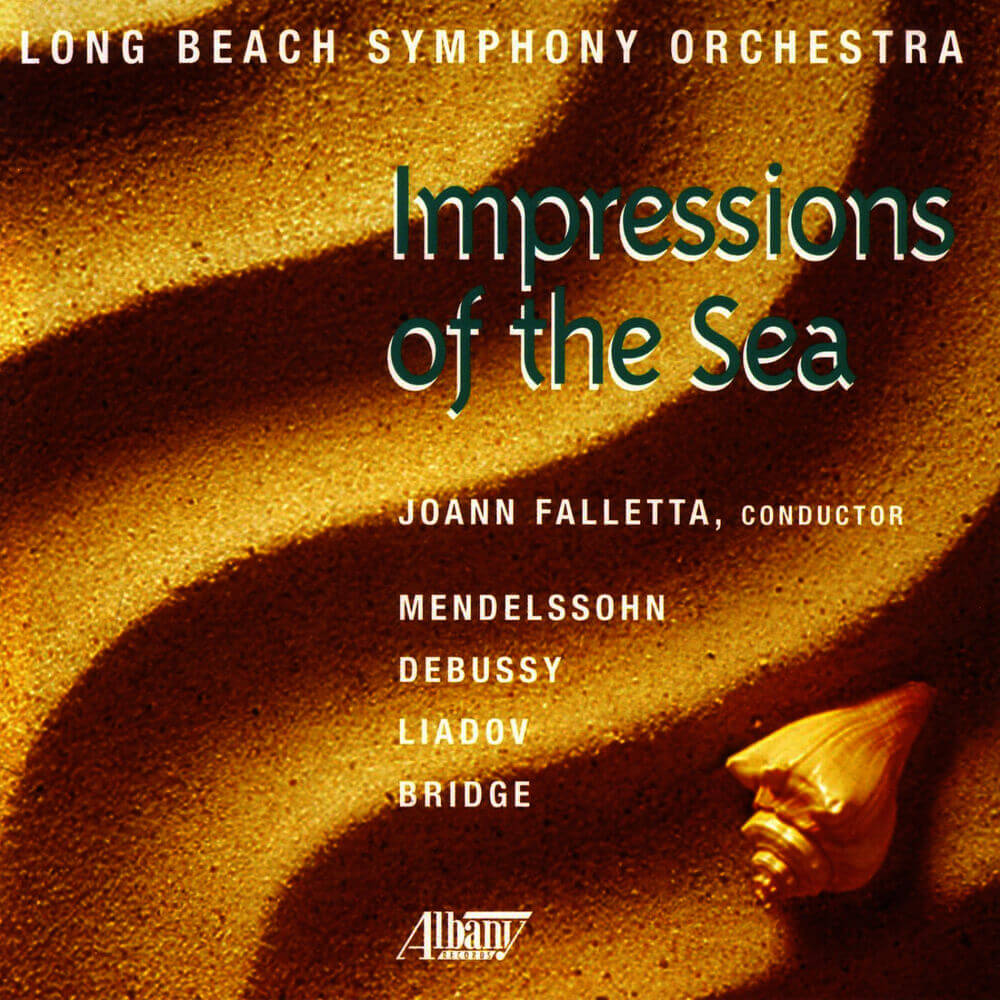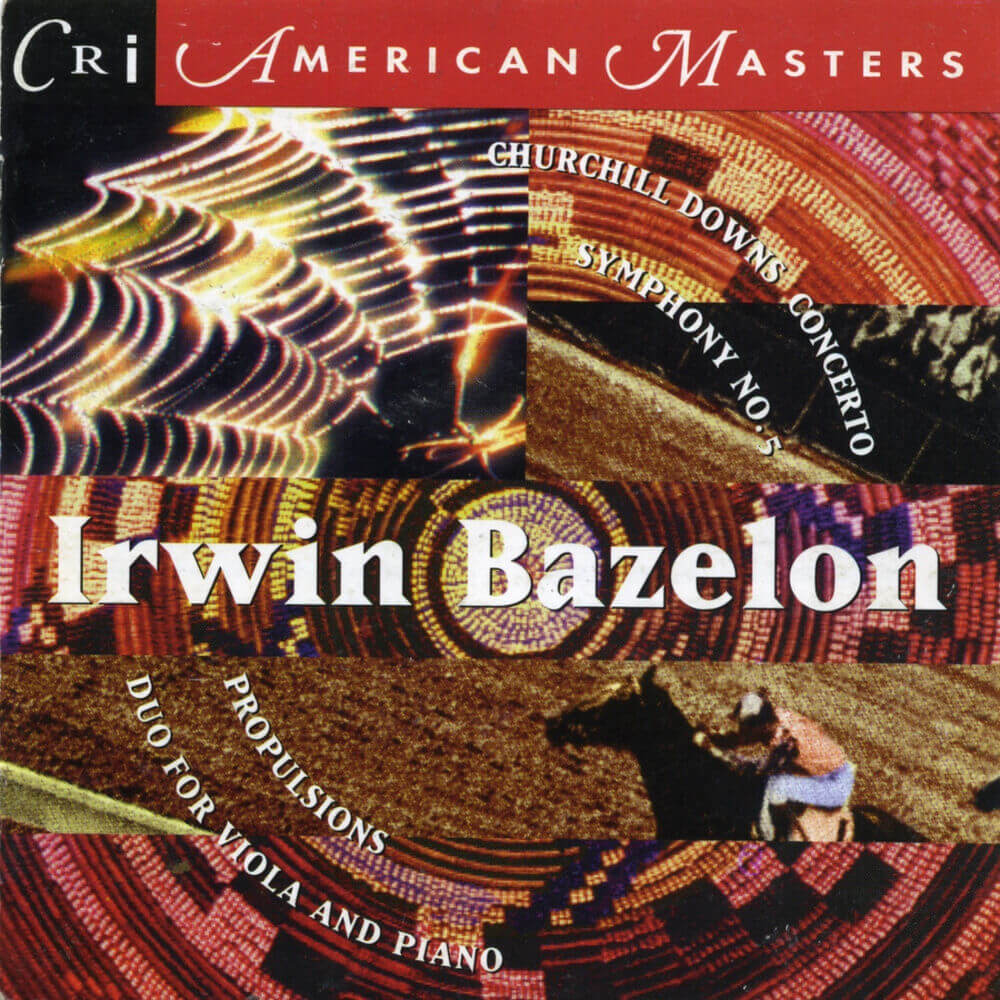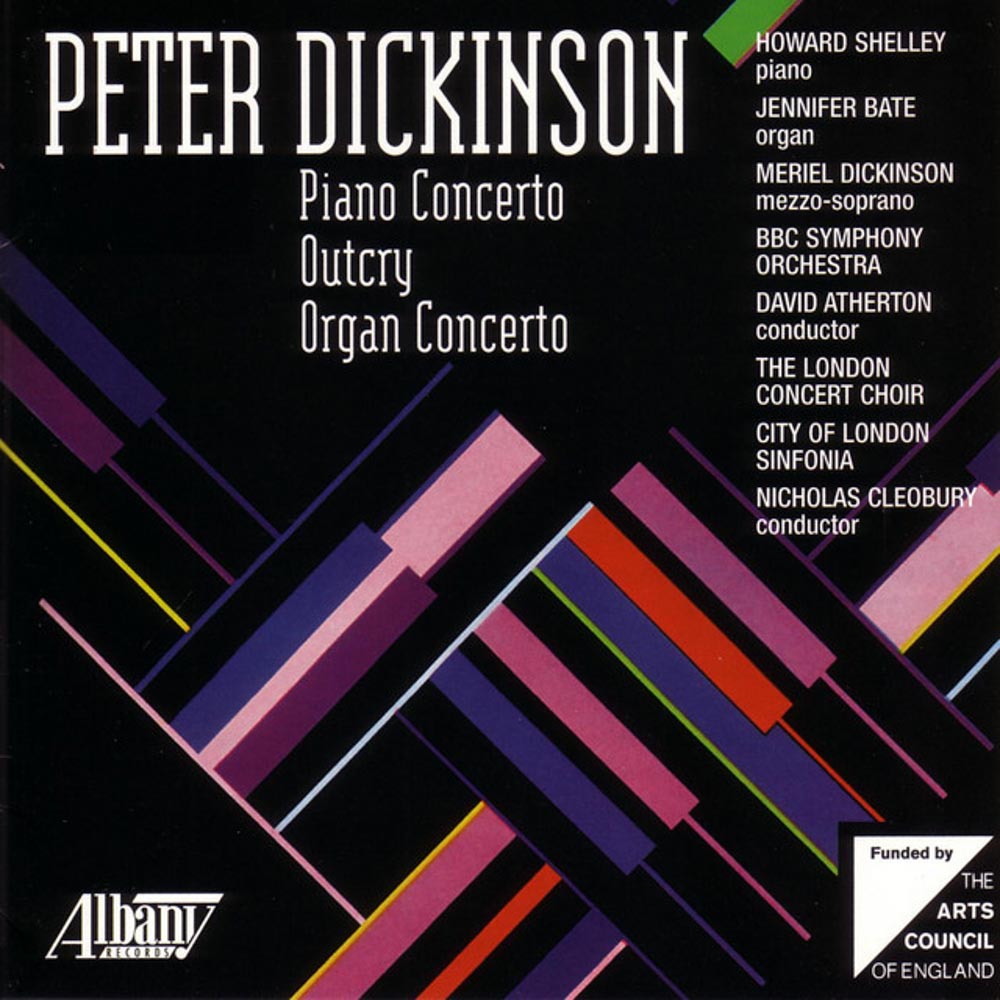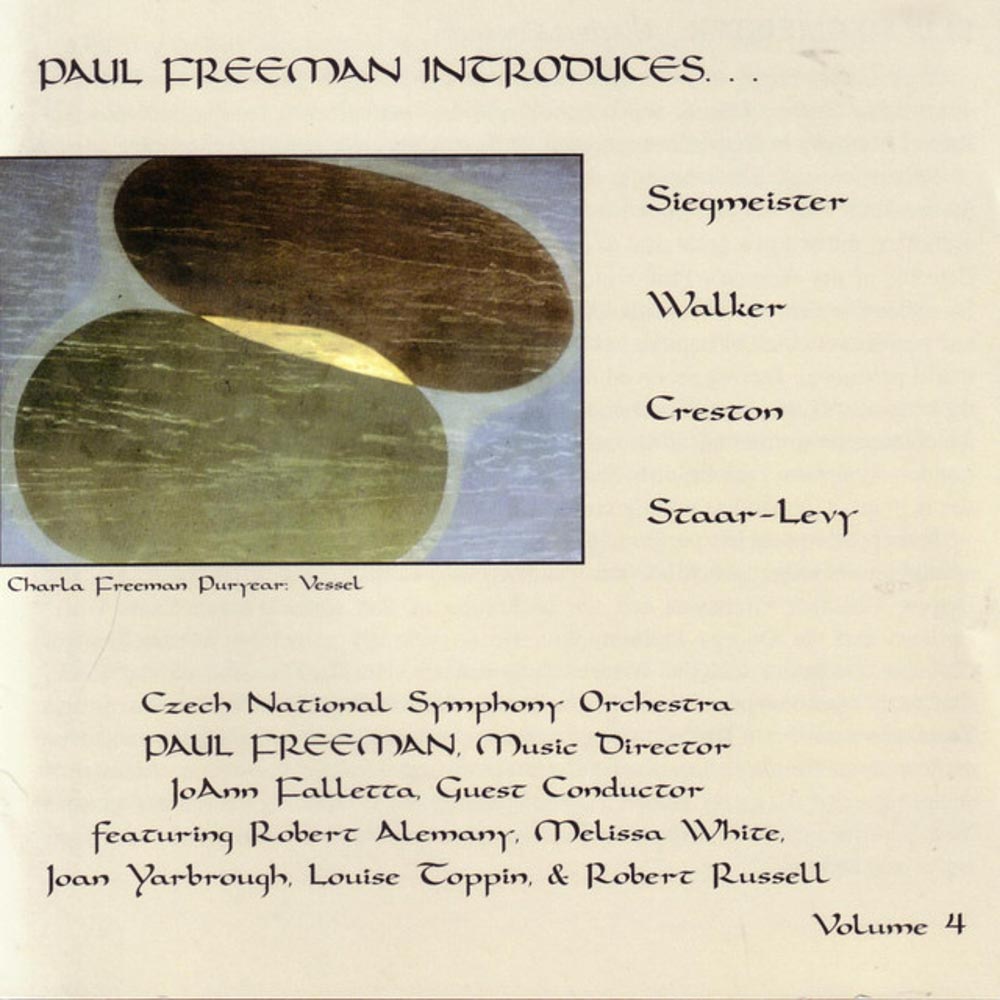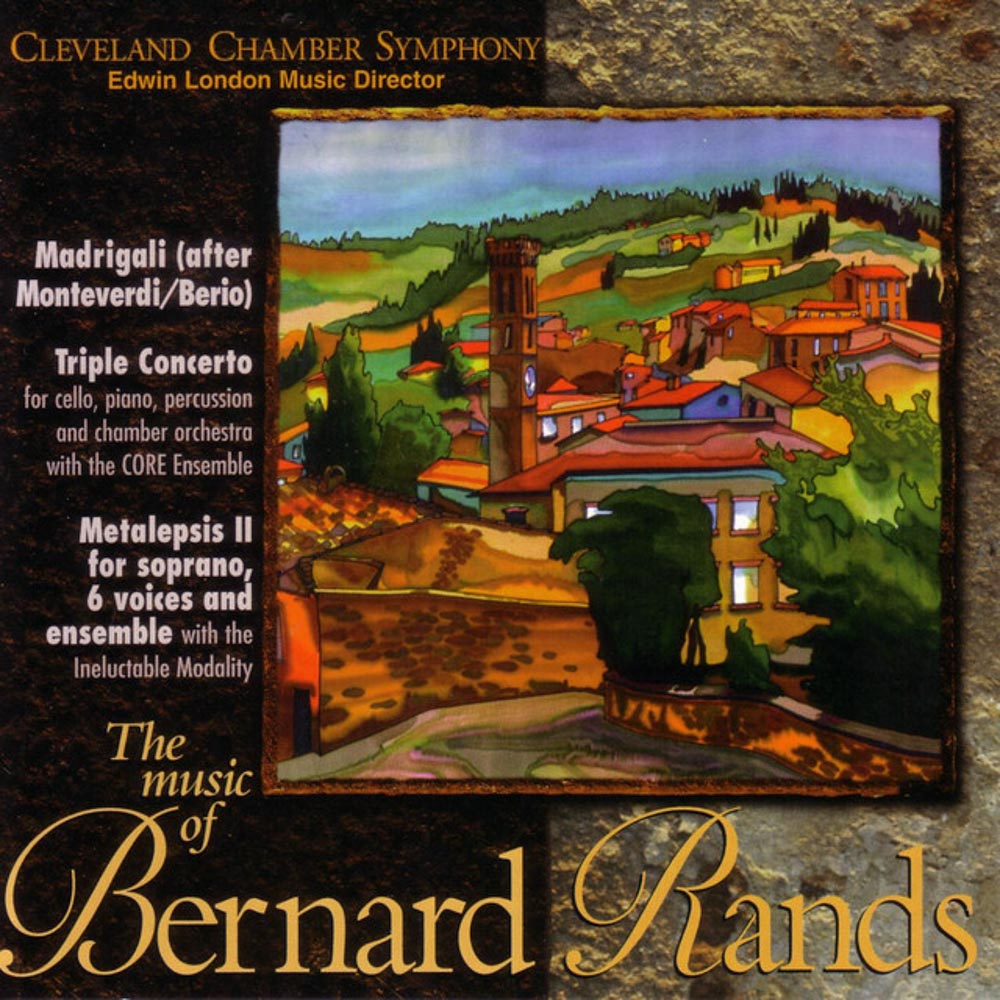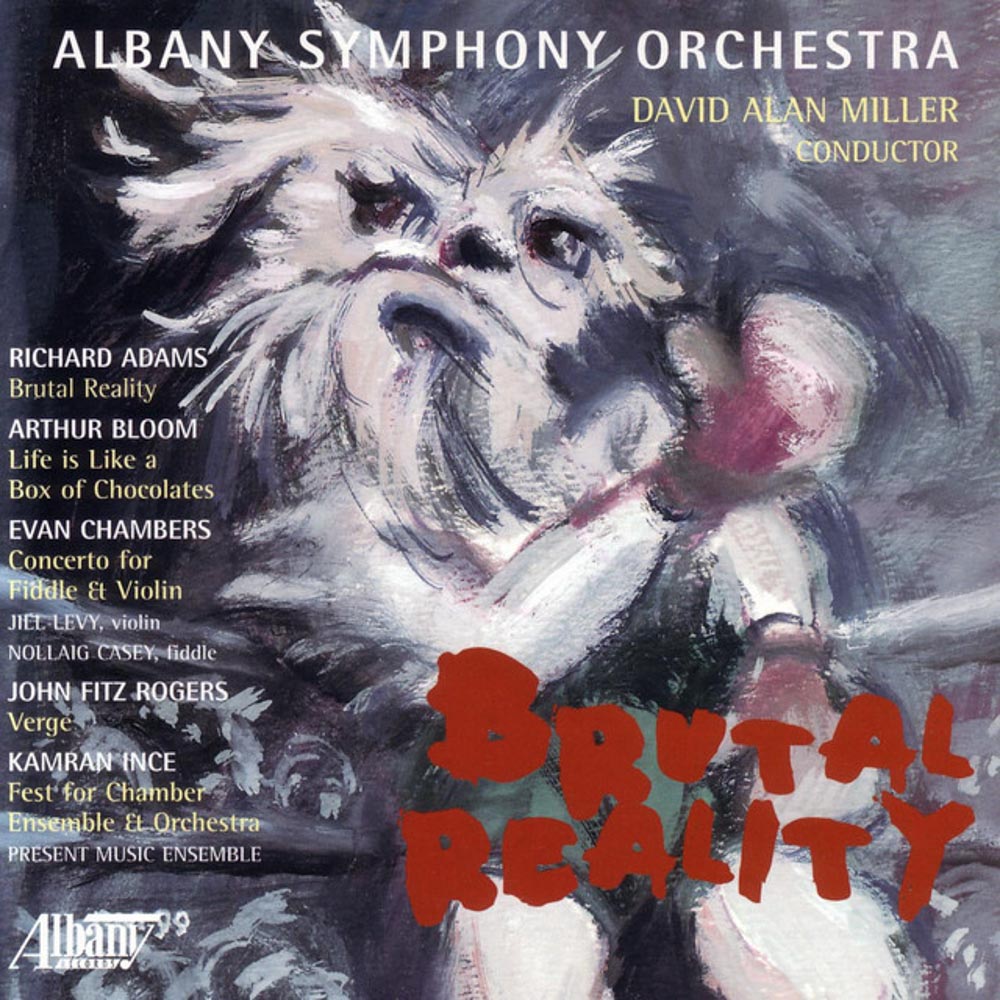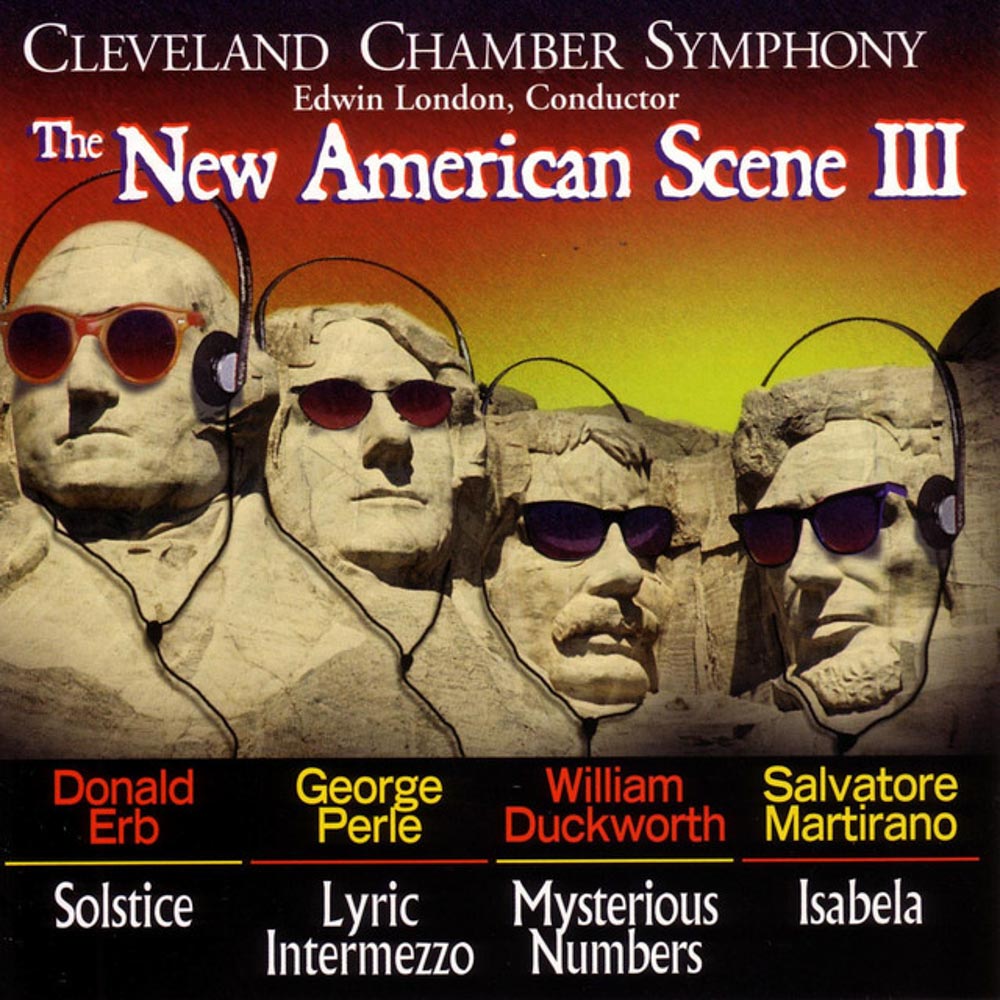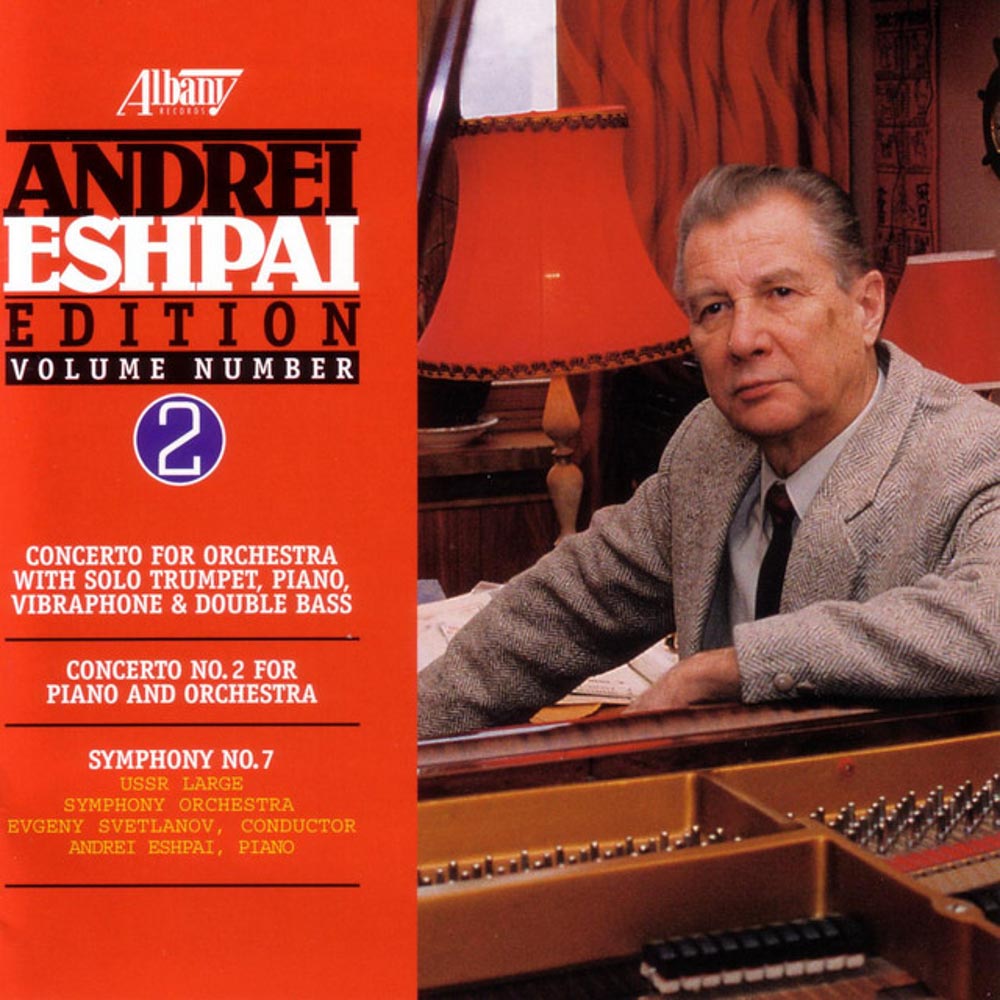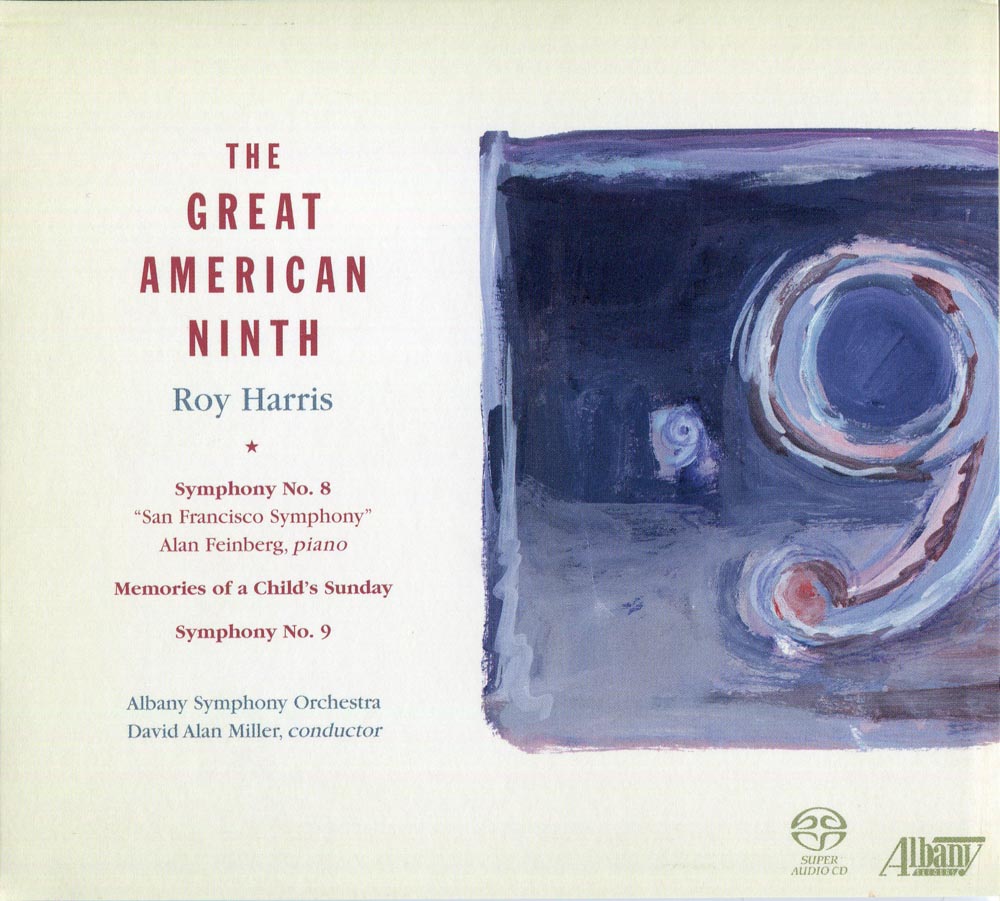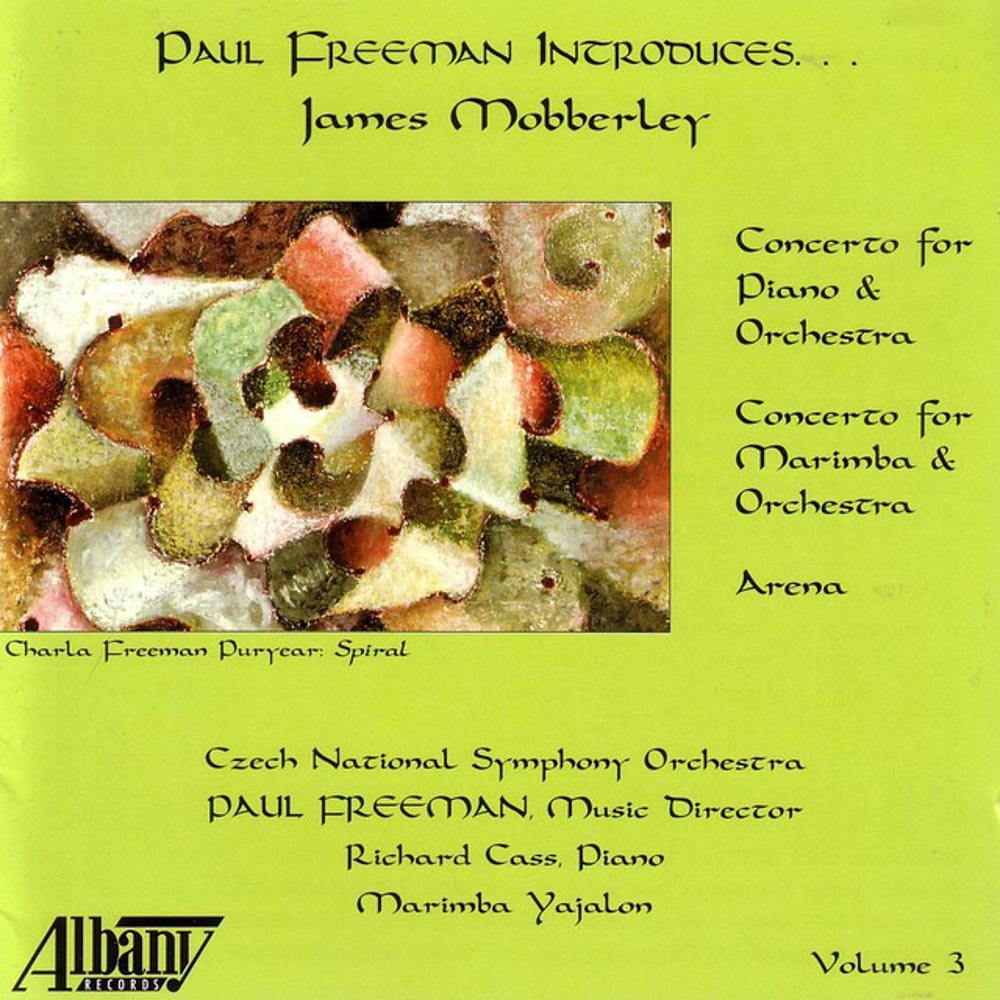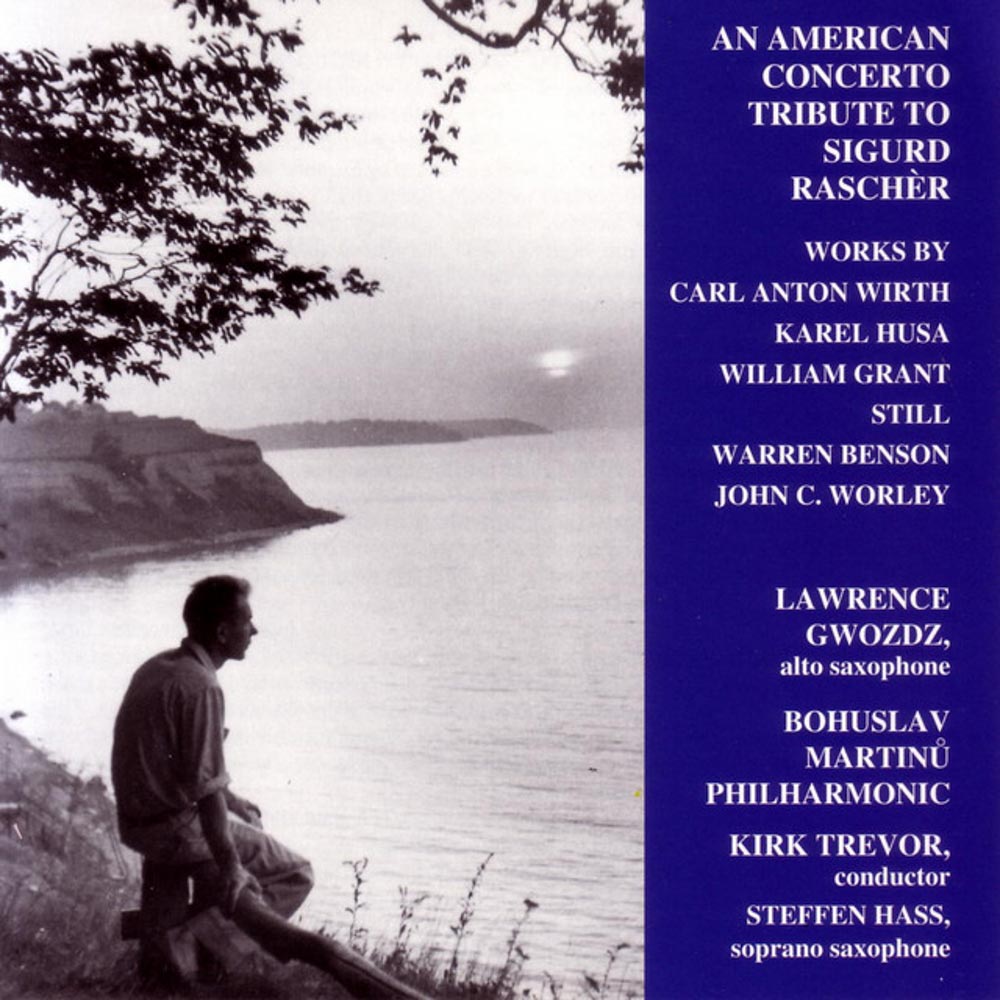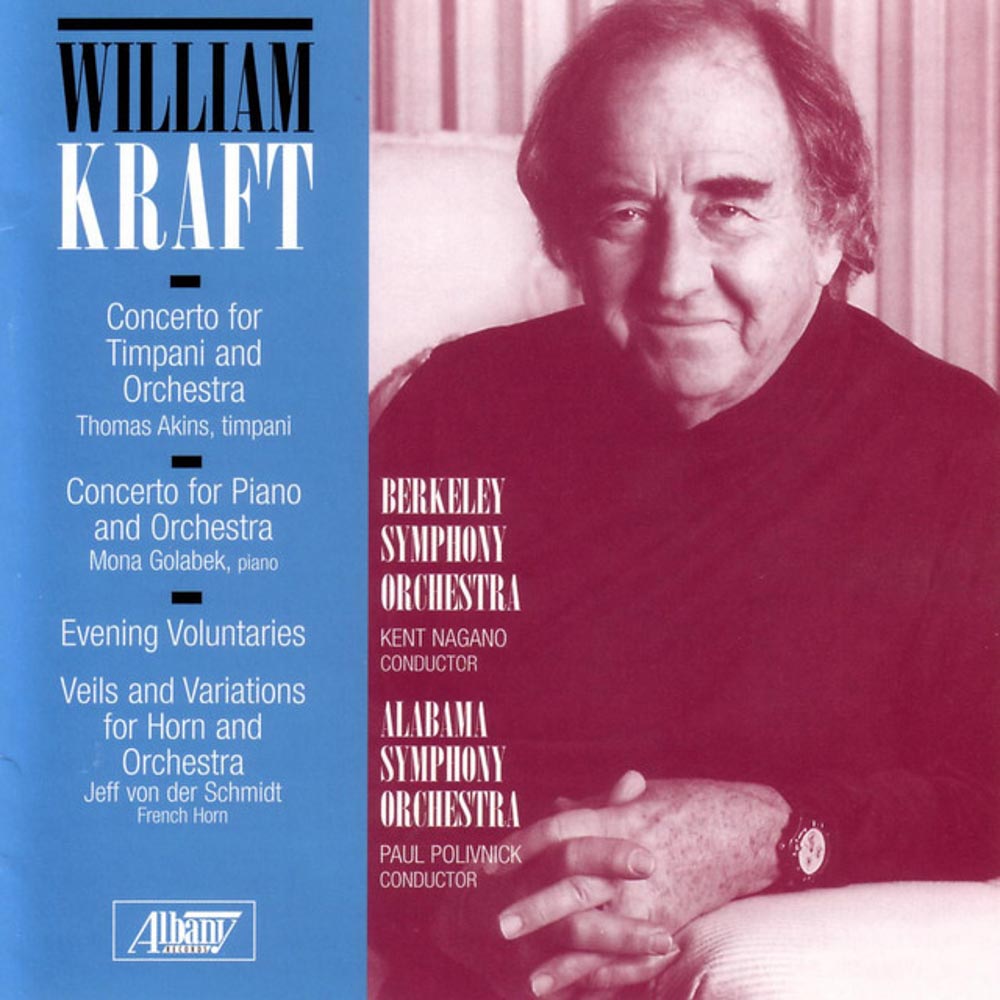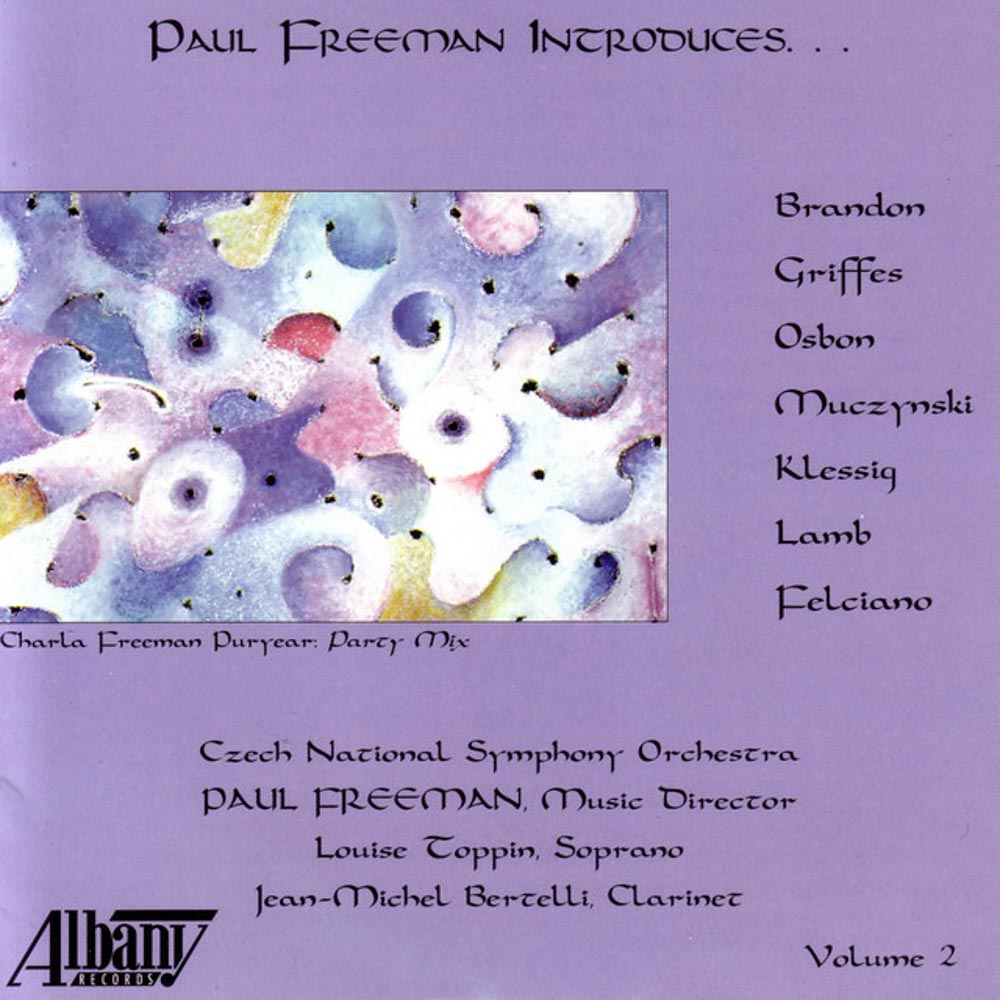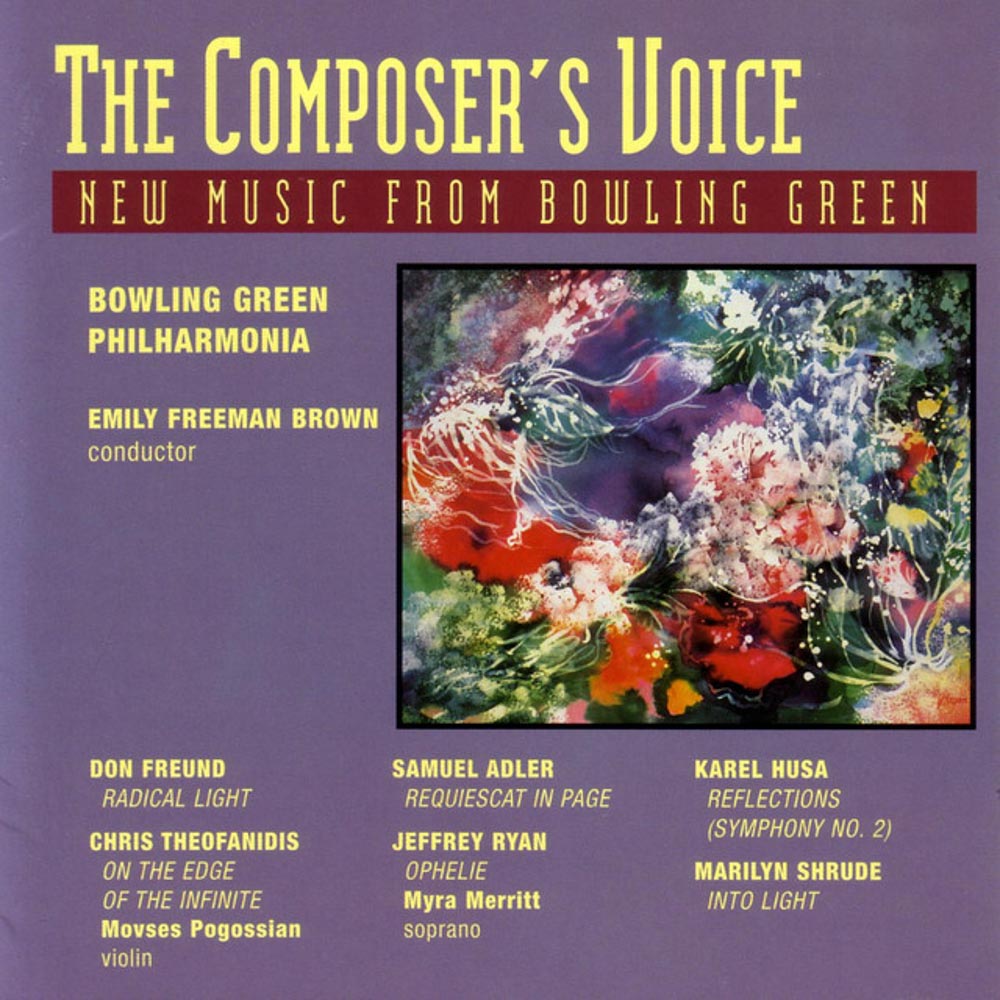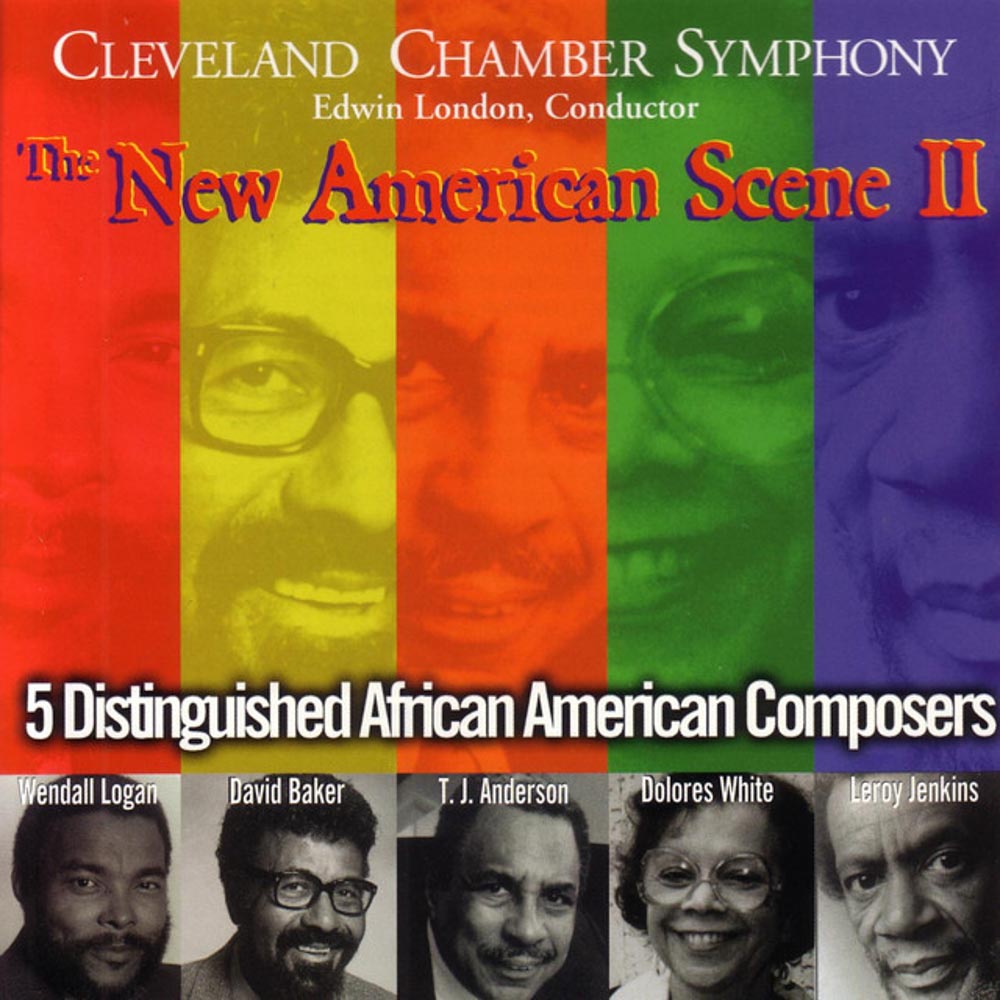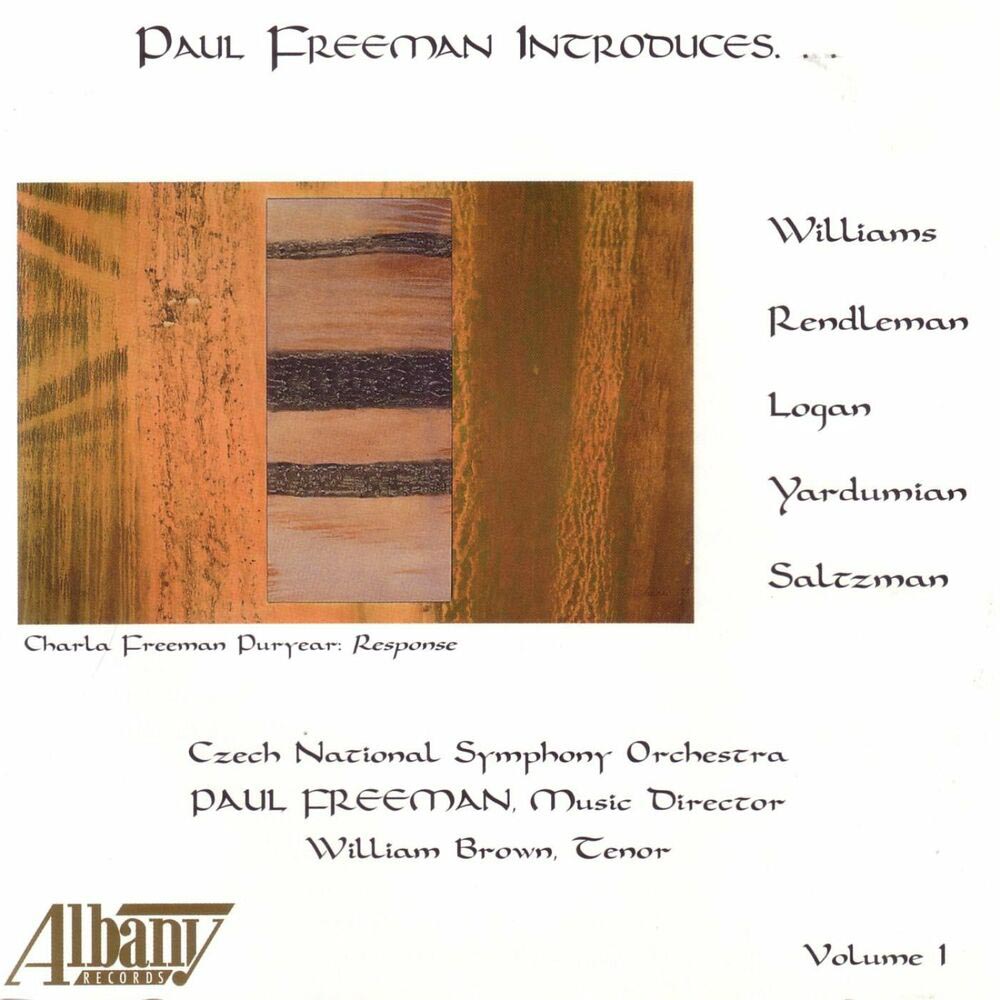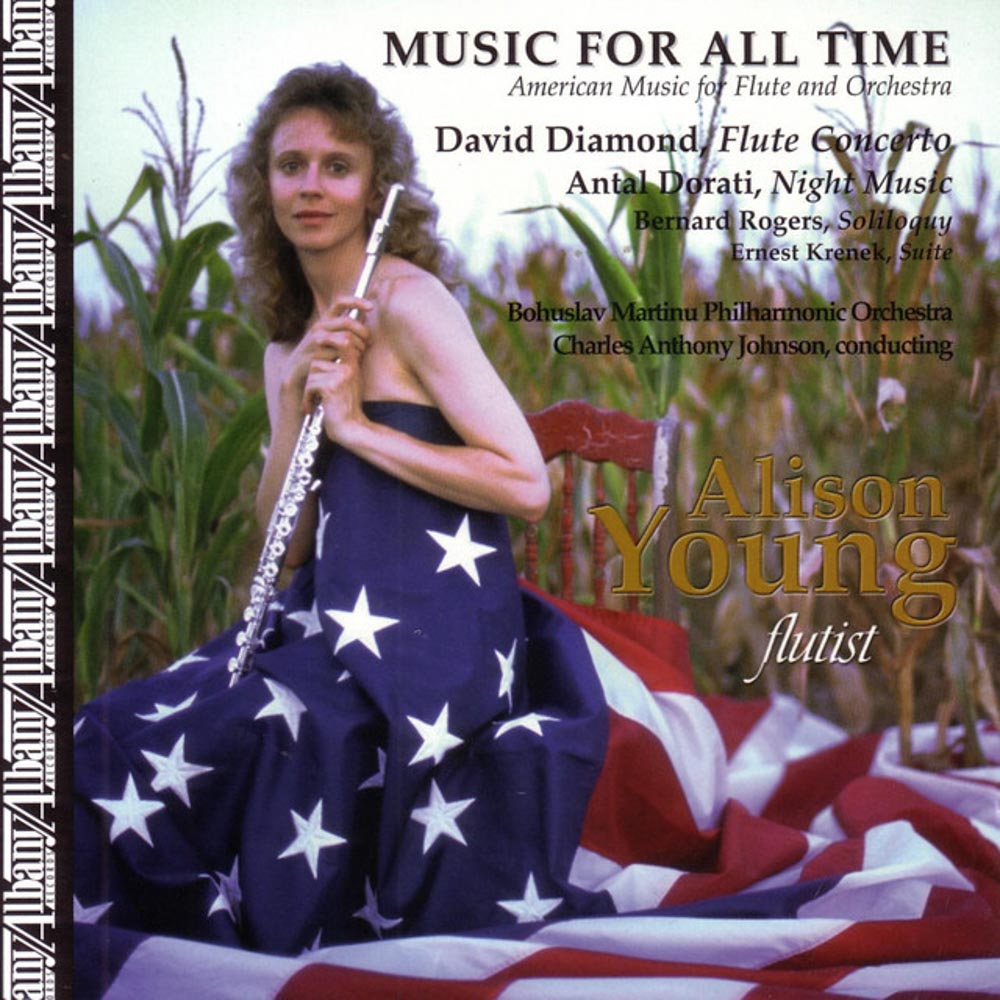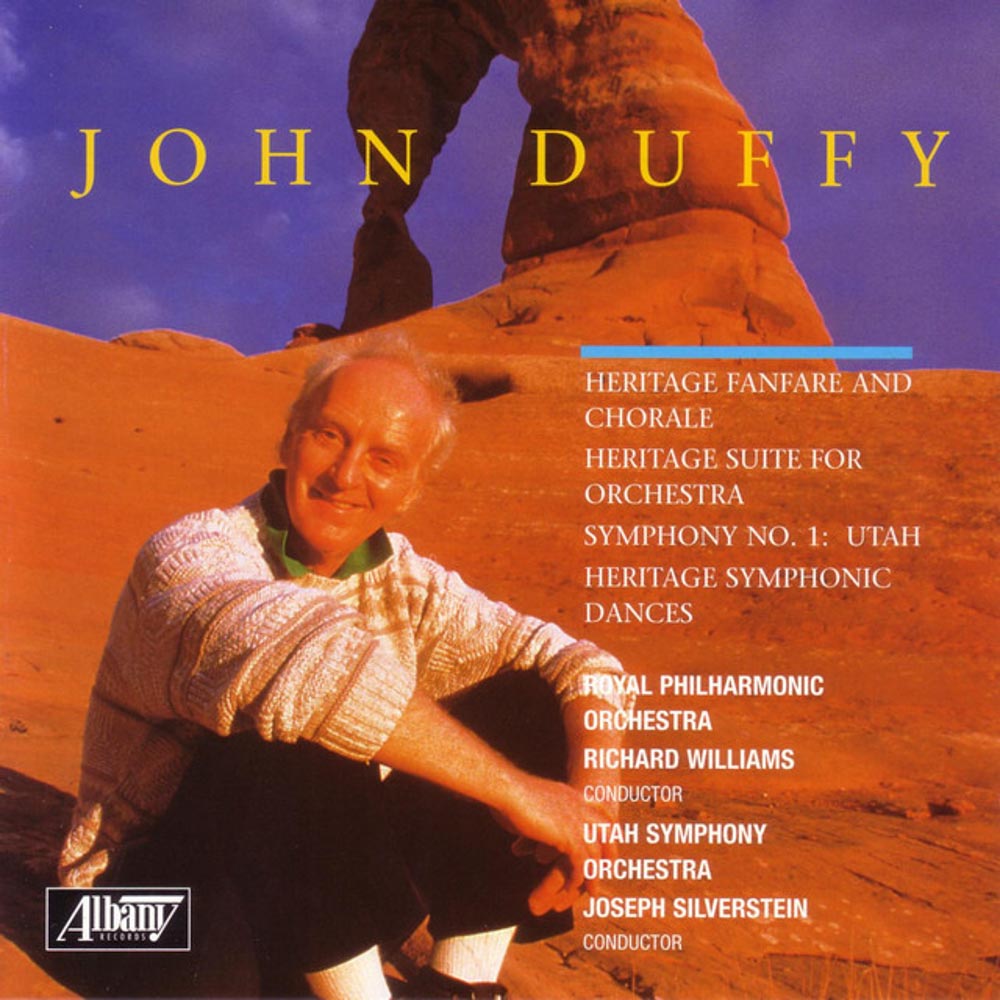Catalog #: TROY0425
Release Date: December 1, 2000OrchestralHere is one of Maestro Eshpai's greatest scores. This music was once available as a 2-LP Melodiya set and was long sought after by collectors. The sound has been re-mastered and is here presented on CD for the first time. In essence "A Circle" is a ballet symphony. So significant is the theme of the ballet, the landscape of the infinitely changing world, that one is naturally led to the idea of its treatment by purely orchestral, symphonic means outside any imagery. Lyricism occupies a prominent place in the ballet as does music from previous ages. There is the Viennese waltz, the military march, a gracious old-fashioned arrangement of the minuet. Of course rhythms of the 20th century permeate the work as do echoes of music from jazz bands and even a hint of rock. There are the sounds of bells throughout the work symbolizing death and there are lovely, lyrical themes from the strings symbolizing the two lovers. Here is music in the mainstream of Russian ballet. If you enjoy Shostakovich, you will love this new composition by Eshpai.
Catalog #: TROY0416
Release Date: October 24, 2000OrchestralThis collection of works by Respighi, Martinu and Musorgsky/Ravel is centered around pictures: Boticelli, Francesca, and Hartmann. Given stunning performances by the Long Beach Symphony conducted by Jo Ann Falletta, this is Albany's second release with this fine orchestra and world-class maestra.
Catalog #: TROY0394
Release Date: October 1, 2000OrchestralJohn Biggs was born in Los Angeles. He received his Master's Degree in composition from the University of California at Los Angeles. He also studied in Belgium. His teachers were Roy Harris, Lukas Foss, Ingolf Dahl, Flor Peeters and Halsey Stevens. As an educator, he has taught at Los Angeles City College, UCLA, UC Berkeley and served as composer-in-residence to six colleges in Kansas under a grant from the Department of Health, Education and Welfare. As a performer he founded the John Biggs Consort, which toured internationally under Columbia Artists Management, specializing in medieval, renaissance and 20th century music. Paul Freeman writes: "I was particularly struck by the similarity of approach between Biggs and that of the Baroque era. His feel for tone color, Orchestration, counterpoint and compositional form in general is indeed very strong. The unusually cheerful brightness of the cello concerto is a good contrast to the more austere and penetrating viola concerto."
Catalog #: TROY0391
Release Date: September 1, 2000OrchestralHere is a disc of music to be enjoyed. Anyone who likes Beethoven, Mozart and Brahms, will enjoy Gillis. This is a true “crossover” CD. Gillis was born in Cameron, Missouri and studied the trumpet and trombone as a boy. He performed in the Cameron Rotary Club band and in his high school orchestra. In high school he formed his own jazz band for which he wrote arrangements and original music. At 17, he moved to Ft. Worth, Texas and enrolled in Texas Christian on a trombone scholarship (don’t you love this guy’s roots?). He studied orchestration and composition at North Texas State in Denton, then got a job as arranger and producer for a Ft. Worth radio station. He then went to the NBC station in Chicago, lasted one year there and went to NBC in New York where he served as the chief producer and writer for the NBC Symphony Orchestra concerts. He established a close personal relationship with Toscanini who conducted many of his works. After the Orchestra disbanded in 1954, he became vice-president of the Interlochen Music Camp, then Chairman of the Music Department at Southern Methodist University (1967-68), chairman of the fine arts department at Dallas Baptist College (1968-1972) and in 1973 he was appointed composer-in-residence at the University of South Carolina. So, you are thinking, Gillis sounds like a typical academic composer. Hardly. Gillis’ music will not only brighten your day, but your entire holiday season. All the works but the Symphony No. 5 1-2 are recorded here for the first time anywhere.
Catalog #: TROY0400
Release Date: August 1, 2000OrchestralThis release fills a hole in the catalog large enough to drive a truck through. This is the world premiere stereo release, the world premiere CD release of Walter Piston's Third Symphony. The only recording of this serious, somber, most beautiful of Mr. Piston's symphonies was made almost fifty years ago by Howard Hanson for Mercury. The Symphony is dedicated to the memory of Natalie Koussevitsky. It is particularly appropriate for Jimmy Yannatos and the Harvard-Radcliffe Orchestra to bring us this important music because Piston was closely associated with Harvard throughout his life. He attended Harvard as an undergraduate, joined the faculty in 1926, and became a full professor in 1944, remaining at Harvard for many years. It is also just as fitting that this disc contains the work of another American composer closely associated with Harvard, James Yannatos, who has conducted the Harvard-Radcliffe Orchestra since 1964. Those who are familiar with Yannatos' other works on Albany Records will know what to expect from this fine composer. His Concerto for String Quartet and Orchestra was written for the Mendelssohn String Quartet while the composer was on a sabbatical leave from Harvard during February to June 1995. The Symphony No. 3 was commissioned by Joel Spiegelman in 1989 for concerts he was to conduct in the former Soviet Union with the Lithuanian State Symphony. Many customers will buy this CD because of the Piston Third, but they will be most pleasantly surprised at the bonuses presented to them by the music of Yannatos. His music is a perfect compliment to the music of Piston.
Catalog #: TROY0397
Release Date: July 1, 2000OrchestralNational Public Radio has said of Pavlova's music: "In Pavlova's music you find a special quality of the Russian way of thinking. Let's say, it comes from the way of thinking found in Chekhov, Tchaikovsky, and Rachmaninoff." Alla Pavlova is a composer, pianist, and musicologist. Born in Russia, she received her Masters Degree at the Gnessin Academy of Music in Moscow in 1983. After graduation she lived in Sofia, Bulgaria for several years where she worked for the Union of Bulgarian Composers and the Bulgarian National Opera. She then moved to Moscow where she lived from 1986 to 1990, working for the Moscow (later, Russian) Musical Society Board as a senior consultant. In 1990 she immigrated to New York and became a member of New York Women Composers in 1991. She has a special interest in creating music for theater, dance, film and children.
Catalog #: TROY0370
Release Date: June 1, 2000OrchestralIt is obvious that Albany Records thinks highly of the music of the late American composer Buddy Bazelon, for other of his compositions appear on TROY54, TROY01, TROY74, TROY82, and TROY63. The Symphony No. 6 was composed in 1969. It was commissioned to celebrate the 100th anniversary of the founding of the Temple B'nai Jehudah in Kansas City, Missouri. The symphony exploits the link between the circumstances of its commission and the music Bazelon had written for the 1968 Jules Dassin feature-film documentary on the Six-Day War, Survival 67. The first performance was given by the Kansas City Philharmonic in November, 1970. Overture to Shakespeare's Taming of the Shrew was composed in 1960. It is based on music written for a production of The Taming of the Shrew by the American Shakespeare Festival Theater in 1957. The Overture already bears the fingerprints of the mature Bazelon style in its colorful orchestration and clearly etched musical profiles. Shakespeare's characters spring off the page and engage the listener in this effervescent and effective musical portrait. The first performance of the work was given by the National Gallery Orchestra conducted by Richard Bales in May, 1964. The Short Symphony was composed in 1961. The numbering Bazelon used for his Symphonies shows that he regarded this as his second symphony. The Short Symphony makes a quantum leap in focusing orchestral forces to create the bristling rhythmic energy that marks all of the composer's later scores. The first performance of the work was given by the National Symphony Orchestra conducted by the composer in December 1962. If you enjoy a big, 20th century, American orchestral sound, then this is a disc you will enjoy.
Catalog #: TROY0390
Release Date: May 1, 2000OrchestralWithout question John Harbison is one of America's most prominent composers. He has been composer-in-residence with the Pittsburgh Symphony, the Los Angeles Philharmonic, the Tanglewood, Marlboro, Aspen, Ojai, and Santa Fe Festivals, and the American Academy in Rome. He is Institute Professor at the Massachusetts Institute of Technology and has taught at Cal Arts and Boston University, is President of the Copland Fund and serves on the board of directors of the Koussevitsky Foundation. The Most Often Used Chords was composed in 1992 for the Los Angeles Chamber Orchestra which gave it its first performance on October 22, 1993. The Flute Concerto was composed on a commission from the Wallace Foundation and Meet the Composer for Ransom Wilson. It was premiered on October 29, 1995 with Mr. Wilson and the American Composers' Orchestra under Paul Lustig Dunkel. The Symphony No. 3 was commissioned by the Baltimore Symphony Orchestra and is dedicated to the composer Christopher Rouse. Mr. Harbison has been front and center in America's classical music news recently because of the performances by the Met of his new opera The Great Gatsby. Well, this new disc recorded in the Troy Savings Bank Music Hall in magnificent, warm sound, shows a different aspect of the genius of this great American composer.
Catalog #: TROY0381
Release Date: May 1, 2000OrchestralA brand new name to the catalog - wonderful music. Robert Nelson was born in Phoenix and studied at the University of Southern California with Ingolf Dahl and Halsey Stevens. He is currently a Professor of Music Theory and Composition at the University of Houston Moores School of Music. He has long been interested in theatrical music, as both a composer and coach/conductor. This meshes with a life-long interest in the widest range of musical idioms - from the most avant-garde contemporary effects to current jazz and popular styles. Writing for the theater has allowed him to explore all these various idioms and employ whichever were most appropriate to the project at hand. His theatrical experience has included a long involvement as composer for the extraordinary mime troupe of the University of Houston School of Theater.
Catalog #: TROY0377
Release Date: April 1, 2000OrchestralDavid Baker is a native of Indianapolis and currently holds the position of Distinguished Professor of Music and Chairman of the Jazz Department at the Indiana University School of Music in Bloomington. A virtuosic performer on multiple instruments and top in his field in several disciplines, Mr. Baker has taught and performed throughout the United States and abroad. He is also the conductor and artistic director of the Smithsonian Jazz Masterworks Orchestra. He studied with J.J. Johnson, Janos Starker, William Russo, Bernard Heiden and Gunther Schuller among others. Paul Freeman writes: "For many years it has been my pleasure to perform the music of the distinguished composer David N. Baker. I was first introduced to his creative talent during the mid-1970s when we included his music in the historic Black Composers Series released by Columbia. I have always been impressed by the breadth and scope of his talent and the extraordinary range of his tonal palette." The booklet notes about the music are by the composer.
Catalog #: TROY0347
Release Date: March 1, 2000OrchestralDruckman's The Sound of Time started out as a piece for soprano and piano which was premiered in 1964. This chamber version was first heard in 1965 and lasts about 12 minutes. It is a setting of texts from Deaths for the Ladies (and other Disasters) by Norman Mailer. Augusta Read Thomas' Spirit Musings for Violin and Orchestra was composed in 1997 and is actually a version of her Van Straaten Concerto No. 1 for flute and chamber orchestra. The version of the piece recorded here is the first performance in the new form. John Musto was born in Brooklyn and received his earliest musical training from his father, a jazz guitarist. Self taught as a composer, he studied piano with Seymour Lipkin and Paul Jacobs. His piece Encounters was premiered by the Cleveland Chamber Symphony on September 21 and 22, 1992. Jeffrey Jacob was educated at Juilliard and the Peabody Conservatory and he also studied at the Salzburg Mozarteum. His piece The Persistence of Memory here receives its premiere performance and recording.
Catalog #: TROY0367
Release Date: February 1, 2000OrchestralIn volume three of this very well-received series, we have early, middle and late examples of the works of this fine composer. If any of these performances have appeared anywhere before here, on this new CD, they appear in the best sound they have ever received for the performances have all been remastered for this series of recordings. We feel that Eshpai is a composer of sufficient stature that his music deserves the best sound possible, so the listener can judge more appropriately the quality of the music. This has been done.
Catalog #: TROY0364
Release Date: January 1, 2000OrchestralSo you are saying to yourself, repertoire a bit out of the ordinary for Albany Records? True, but still it is repertoire performed by a magnificent American conductor and wonderful American orchestra. This disc was first issued privately by the Long Beach Symphony Association. This is when it came to our attention. We were very impressed as were the reviewers who had the opportunity to hear the disc. So, here at Albany Records, we are not just about American music, but American artists as well. In truth, no major label would ever give our great American artists of this caliber a chance for exposure, so we decided to do it ourselves. In particular, the performance of the Bridge is terrific and can hold its own with the best out there. The disc is well recorded. JoAnn Falletta is one of this country's finest conductors. Listen to this disc yourself and you can hear the talent.
Catalog #: TROY0363
Release Date: January 1, 2000OrchestralBuddy Bazelon died on August 2, 1995 at the age of 73. He composed nine symphonies and more than 60 orchestral, chamber and instrumental pieces. Born in Evanston, Illinois, he graduated from DePaul University with degrees in music. He studied with Hindemith at Yale and Milhaud at Mills College. From 1948 until his death he lived in New York City and Long Island where he had a retreat which was the perfect counterpoint for the tensions and hustle-bustle of urban life with which his rhythmically complex and often jazz-tinged music bristles. In his early years in New York, Bazelon supported himself by scoring documentaries, art films and theatrical productions. During the 50s and the 60s he composed more than fifty scores of this kind, which proved to be an invaluable preparation for his orchestral music. In a valedictory of sorts he wrote Knowing the Score: Notes on Film Music. Published in 1975, this book is widely used as a college text. As guest composer Bazelon frequently lectured at leading universities and music schools throughout the United States and England. Young people were especially drawn to his feisty spirit and no-nonsense approach to earning a living by applying compositional talents to the commercial world without sacrificing integrity. A long-time racing enthusiast, one of his best known works, Churchill Downs (Chamber Concerto No. 2) is named for the home of the Kentucky Derby.
Catalog #: TROY0343
Release Date: December 1, 1999OrchestralLeonardo Balada, the Catalan composer who came to New York in 1956 to study composition, has been a powerful creative force for more than three decades. His highly personal avant-garde techniques in the sixties - dramatically as well as rhythmically imposing - sets his works like Guernica and Maria Sabina apart from composers of the time. Later, in the seventies, he was credited as a pioneer in blending the avant-garde with folkloric ideas mixing the new with the old- now a very fashionable trend- in works like Sinfonia en Negro-Homage to Martin Luther King (1968) and Homage to Casals and Sarasate (1975). His exposure to the plastic arts in New York was perhaps of greater significance to his style than the music he heard around him. In Balada's music one finds by his own admission a perplexing amalgamation of traditional Spanish culture influenced by modern concepts of geometric art, "collages" as seen in the paintings of Rauschenberg and the surrealism of Salvador Dali. Balada had collaborated several times in New York during the early sixties. In an interview over a generation ago Balada explained his position towards this dichotomy saying: "If I go to Andalusia and choose to wear a "Cordobes" hat, or a cowboy hat in Texas or no hat at all on Wall Street, I still will be recognized as me, provided that my personality emerges in spite of my disguise." And his works are very personal indeed, through textural writing, blunt contrasts of ideas and dynamics, juxtaposition of opposing harmonies, mechanistic passages in layers of "staccato" writing, a rhythmic constancy and above all, a compelling sense of direction and goal in the form and drama of his music.
Catalog #: TROY0360
Release Date: November 1, 1999OrchestralThe British composer Peter Dickinson was born at Lytham St. Annes, Lancashire. His sister, Meriel Dickinson, is the mezzo-soprano with whom he had a long performing partnership. He has also been a long time contributor to The Gramophone Magazine. His reviews are signed PD. He went to The Leys School, Cambridge, was Organ Scholar of Queen's College, Cambridge, and then spent three formative years at Juilliard, where he was a pupil of Bernard Wagenaar and a contemporary of Philip Glass and Peter Schickele. During this period he was a critic on the Musical Courier and the Musical Times; taught at Fairleigh Dickinson University in New Jersey and became interested in American music of all kinds. He returned to England in 1961 where he held various teaching jobs. In 1974 he became the first professor of music at Keele University, Staffordshire, where he set up the new department along with its Center for American Music. Today he is head of music at the Institute of United States Studies, University of London. He has also written books on the composer Sir Lennox Berkeley, with whom he studied and the British novelty pianist, composer and educator, Billy Mayerl. The two concertos originally appeared on EMI.
Catalog #: TROY0356
Release Date: November 1, 1999OrchestralElie Siegmeister received his B.A. from Columbia University. He studied with Wallingford Riegger, Nadia Boulanger and at Juilliard. The Clarinet Concerto, a delightful piece, reflects the composer's involvement with Broadway theatre and his interest in a type of personalized jazz. Gwyneth Walker is a rarity among composers, in that she supports herself entirely by her writing. Her catalog contains over 100 commissioned works. Her artistic and personal goal is to provide music "where it is needed and will be enjoyed." She lives on the Brainstorm dairy farm in Braintree, Vermont, surrounded by more than 200 Holstein cows. Paul Creston's Fantasy for Piano and Orchestra was completed in September, 1942 and was first performed by the High School of Music and Art Orchestra at Carnegie Hall. This is its first recording. Just an Accident? was first written as a Chamber work, commissioned by the Festival of New Music in Wiener Neustadt, Austria for the Webern Centennial in 1983. As a symphonic work for full orchestra it was premiered in America in 1986 with Philippe Entremont and the New Orleans Philharmonic.
Catalog #: TROY0355
Release Date: November 1, 1999OrchestralThe composer writes: "This recording is of particular significance for me for two reasons. First, it marks one of the many happy collaborations I have enjoyed with the composer-conductor Edwin London and, through him, with the fine musicians of the Cleveland Chamber Symphony. It also, in the selection of works, reflects an important, almost forty year friendship I cherish with Luciano Berio, my former teacher and early mentor. The premiere performance of Metalepsis II (1971) was conducted by Berio. Madrigali (after Monteverdi-Berio) composed in 1977 refers constantly to Berio's fine transcription of Monteverdi's Il Combattimento at the same time as it relates many aspects of his own original music to that of his Italian predecessor. Triple Concerto (1998) carries the dedication "to Luciano Berio with love and gratitude."
Catalog #: TROY0354
Release Date: November 1, 1999OrchestralAll the music on this disc was originally created, performed and recorded for "Dogs of Desire," the new music ensemble of the Albany Symphony Orchestra. Richard Adams, Arthur Bloom, Evan Chambers and John Fitz Rogers are all young composers at the beginning of their careers. Give them a listen! See if you enjoy what they are doing. Kamran Ince is a composer who has been long associated with the Albany Symphony. There is a disc of his symphonic works and piano concerto that has been out on Argo for quite some time, not to mention the disc of his Chamber music that is available on Albany. All compositions on this disc were recorded in the wonderful Troy Savings Bank Music Hall and after they were performed before subscription audiences. This means they are beautifully played by the orchestra.
Catalog #: TROY0292
Release Date: September 1, 1999OrchestralAs is amply evident by the music on this recording, George Perle has found a musical language that is both authentically his own and one that is recognizable as a language which has its antecedents in particular composers from the early part of this century - specifically the music of Schoenberg, Berg, Webern, Stravinsky and Bartok. The gradual process by which he arrived at a way of working that he himself could identify as his own was not easy, and serendipity played a part. In 1937, Perle made his first connection with the revolutionary innovations of Schoenberg and his school when he came upon a copy of Alban Berg's Lyric Suite. In its immediate impact on the young Perle it was overwhelming, serving both as an incitement and a confirmation of the potentialities of a disciplined yet still expressive musical language for our time. George Perle's is not a temperament at all given to any kind of woolly mysticism about the nature of things, but even today it is possible to marvel at the way Berg's music effected its way into Perle's youthful imagination. The impact has been eloquently described by Perle himself. He recalls that "I took it to the dormitory piano and within the next five minutes my whole future direction as a composer was established...It wasn't until I came upon the Lyric Suite that I realized that there was something going on in contemporary music that implied really significant new ways of thinking about harmony, rather than some other way of evading the subject..." There is no question that George Perle is an important composer. This new disc will help establish his reputation even further.
Catalog #: TROY0342
Release Date: August 1, 1999OrchestralSolstice, by Donald Erb, is celebratory in nature. It was commissioned by the Ohio Chamber Orchestra and premiered on June 3, 1988. It was originally intended to celebrate the 50th anniversary of the Organization, but the premiere occurred one year later. About his Lyric Intermezzo George Perle writes: "The Lyric Intermezzo was composed on commission from the Seattle Symphony and completed April 12, 1987, but its very first conception goes back some years before that, when my friend (now my wife), Shirley Rhoads, played Schumann's Waldszenen for me. I decided that I too would like to write a set of lyrical Charakterstucke for the piano." William Duckworth's Mysterious Numbers stemmed from an experiment that essentially involved collaboration of a composer with an ensemble to create a new work while an audience witnessed the process during a series of workshops. It happened in Florida in 1995-96, as part of a series of residencies at the Atlantic Center for the Arts by the New Performance Group of Seattle. Salvatore Martirano writes about Isabela "that it was originally aimed at music festivals celebrating the 500th anniversary of the discovery of America. However, music festivals celebrating Columbus ran aground as the implications for native Americans became apparent. Whether from habit or from a persistent motive, what started as a working title became a name as I considered that like Columbus, who began a journey across the sea without knowing where his course would lead him. "I began to compose without really knowing what would result from my plan." This disc contains the result of Martirano's own voyage.
Catalog #: TROY0341
Release Date: August 1, 1999OrchestralMost music lovers' first acquaintance with the music of Andrei Eshpai was with the Concerto for Orchestra on the old Melodyia LP. If you remember this disc, then you will remember two things; how delightful the music was and what a great recording it was. Well, here in great sound, we have this very same performance for everyone to enjoy. Even though the performance of the Piano Concerto is in mono sound, we felt that because of the historical significance of this performance, it should be included in this series. The excitement is palpable - every measure bristles with energy. To complete the disc, a more somber work, Symphony No. 7. Here is an example of Eshpai's more recent music - still beautiful and appealing.
Catalog #: TROY0350
Release Date: July 1, 1999OrchestralA few years back when the regular stereo version of this CD was released, we called it "the ultimate release for the American Symphony fan." Well, in SACD format, it is of even more importance, since those magnificent orchestral colors truly shine in surround-sound! This has always been one of most popular CDs in our catalog, and probably went a long way in changing the minds of those who thought Harris only wrote one Symphony - No. 3. Admittedly, when you see the cover with its "Great American Ninth" in large letters, you will be right to think we have gone "commercial." Garish? You are right! Hype? Right again! This is wonderful American music that should appeal to the same public who likes Aaron Copland, Morton Gould and Leonard Bernstein - and the crowd that loves to hear a big orchestral sound coming from their 5.1 Surround systems!
Catalog #: TROY0335
Release Date: July 1, 1999OrchestralBorn in Des Moines, Iowa, James Mobberley was raised in Pennsylvania. He earned his Master's Degree at the University of North Carolina and his Doctorate at the Cleveland Institute of Music where he studied composition with Donald Erb and Eugene O'Brien. He began teaching composition and electronic music in 1981, and since 1983 has been on the composition faculty of the Conservatory of Music at the University of Missouri-Kansas City. In 1991, he was named the Kansas City Symphony's first Composer-in-Residence. His Piano Concerto was composed for Richard Cass and the Kansas City Symphony and was premiered the same year with William McGlaughlin conducting. The Concerto for Marimba (eight hands) and Orchestra was written for Laurence Kaptain and Marimba Yajalon, an ensemble of four percussionists who perform on an authentic folk instrument indigenous to Chiapas, the southernmost state of Mexico. The most unusual and characteristic quality of this instrument is the buzzing sound created by the kazoo-like membrane at the bottom of each resonator, creating a sound unlike that of any other mallet instrument. The composer writes about Arena : "Arena is the result of approximately two years of collaboration between choreographer Todd Bolender and me. Our discussions ranged from topics on spirituality to politics, from the poetry of T.S. Eliot to the paintings of Anselm Kieffer, from jazz to Stravinsky, and from George Balanchine to Martha Graham. Arena evolved slowly from our discussions into reality. The result is a work which suggests rather than describes, which evokes emotions rather than portrays actions, and which mixes despair and redemption in equal measure through the use of cyclical forms."
Catalog #: TROY0331
Release Date: May 1, 1999OrchestralSigurd Rascher became an instant celebrity when he appeared as a soloist with orchestra at the German Composers' Festival in Hannover in 1932. There was no precedent for a saxophone concerto to be performed at a composers' festival. Reviews of the concert appeared in all parts of Germany. This triumphant orchestral debut, with a concerto by Edmund von Borck (1906-1944), led to repeat performances a few weeks later with the orchestra in Berlin, this time under the baton of the celebrated Eugene Jochum. This was followed by orchestral engagements for Rascher throughout the world. During his long career as a concert artist, he performed with virtually every major orchestra and conductor in the world. With the exception of Debussy's Rapsodie (1904), the enormous number of concerti in Rascher's repertoire were all composed for and dedicated to him. All of these came about as the result of mutual artistic enthusiasm; not one was commissioned. One of Rascher's lifelong goals was to make sure a suitable repertoire was established for the saxophone. This CD contains a sampling of the many works for saxophone and orchestra that he inspired from the pens of American composers. For many years, he was the only person in the world with the ability to perform most of this repertoire. That others now perform it is largely a tribute to Rascher's own influence as the teacher and role model for succeeding generations of saxophonists.
Catalog #: TROY0302
Release Date: May 1, 1999OrchestralThe Concerto for Timpani and Orchestra was commissioned by Percussion Projects for Thomas Akins and the Indianapolis Symphony Orchestra. The premiere took place March 9, 1984, with John Nelson conducting and subsequently won the second prize in the Kennedy Center Friedheim Awards. The music was composed during 1983 at the MacDowell Colony. About his Piano Concerto William Kraft writes: "In 1971, the Ford Foundation announced its second round of grants to soloists who, in turn, were to select composers of their choice. One of the recipients was the young and very dramatic pianist Mona Golabek. After nearly a year of searching, listening and interviewing, Ms. Golabek called me to discuss the project, and eventually offered me the commission." The concerto was written during 1972-1973 and then revised in 1989. It was John Cerminaro who asked William Kraft to write a piece for him. Evening Voluntaries was composed in 1980, but sat unplayed because Mr. Cerminaro felt it was unplayable. Mr. Kraft prevailed and the piece was given its premiere by Jeff von der Schmidt on May 16, 1983, at the Monday Evening Concerts in Los Angeles. It was Jeff von der Schmidt who this time commissioned Veils and Variations. It was completed in May, 1988. It was first performed by the forces heard in this recording on January 27, 1989. It won the first prize in the Kennedy Center Friedheim Awards.
Catalog #: TROY0322
Release Date: March 1, 1999OrchestralSy Brandon is Professor of Music at Pennsylvania's Millersville University. His Celebration Overture was composed in 1995 in honor of WITF-FM's 25th anniversary and was selected as the winning composition in a contest held by the station. David Osbon was born in Reading, England in 1963 and studied composition in Great Britain. He received his Ph.D. from the University of Pennsylvania. Composed as a concert overture, Liberty is a deliberately ironic and ambiguous title for a work that reflects the composer's mixed reactions to life in Philadelphia. Celebrating his 70th birthday this month, Robert Muczynski grew up in Chicago and studied composition with Alexander Tcherepnin. He served as Professor at the University of Arizona for many years and now resides in Tucson. Written at the suggestion of Howard Mitchell, Symphonic Dialogues is dedicated to him and the National Symphony Orchestra. Richard Klessig studied jazz piano in New York City and graduated from the Berklee College in 1992. Meditation from Don Juan is taken from the third act of his 1996 ballet Don Juan which was composed for the twenty-fifth anniversary season of Ballet Oklahoma. Marvin Lamb is the Dean of the College of Fine Arts at the University of Oklahoma at Norman. A native of California, Richard Felciano is a Professor of Music at the University of California, Berkeley, where he is also the founder of the Center for New Music and Audio Technologies. This disc features spoken introductions to the music by Mr. Freeman and as with the first disc in this series, the performances of this music are well rehearsed and recorded.
Catalog #: TROY0321
Release Date: February 1, 1999OrchestralHere is an interesting package of contemporary music, highlighted by a performance of the Symphony No. 2 by Karel Husa in its world premiere recording. The Bowling Green Philharmonia was founded in 1918 by decree of the university president. It is a combined student-faculty ensemble. In the last several years the orchestra, with conductor Emily Freeman Brown, has established a wider reputation through its performances at the Bowling Green New Music and Art Festival. Don Freund was born in Pittsburgh and studied at Duquesne University and the Eastman School of Music. His teachers included Darius Milhaud, Charles Jones, Wayne Barlow, Warren Benson and Samuel Adler. Chris Theofanidis was born in Dallas, Texas and holds degrees from Yale, Eastman and the University of Houston. His piece On the Edge of the Infinite was composed to commemorate the 700th anniversary of the Grimaldi Empire in Monaco. Sam Adler's Requiescat in Pace is dedicated to the memory of John. F. Kennedy and was written in Dallas during November, 1963, immediately after the assassination. The Canadian composer, Jeffrey Ryan, studied both in his native Canada and at the Cleveland Institute with Donald Erb. Writes Mr. Husa: "Although not written in a classical or romantic style, my symphony nevertheless reflects symphonic form.'' Marilyn Shrude is professor of music composition and director of the MidAmerican Center for Contemporary Music at Bowling Green. Into Light was written at the request of Henry Charles Smith for the World Youth Symphony Orchestra and the opening concert of the 67th season of the Interlochen Arts Camp in 1994.
Catalog #: TROY0303
Release Date: January 1, 1999OrchestralIf you are looking for a disc of all WORLD PREMIERE performances of some very appealing American music, this is the disc for you. Wendell Logan is a composer and saxophonist who was educated at Florida A & M University, the American Conservatory, Southern Illinois University and the University of Iowa. He is presently chairman of the department of jazz studies at Oberlin Conservatory. Roots, Branches, Shapes and Shades (of Green) was commissioned by the Cleveland Chamber Symphony and first performed by them in February, 1991. It was composed for the pianist Neal Creque. Thomas Jefferson Anderson is Fletcher Professor of Music Emeritus at Tufts University in Medford, Massachusetts. He holds degrees from West Virginia State University, Penn State and the University of Iowa. He studied with Scott Huston, Philip Bezanson and Darius Milhaud. Chamber Concerto (Remembrances) was commissioned by the Cleveland Chamber Symphony and premiered in 1988. Leroy Jenkins is a virtuoso violinist, composer, arranger and educator. Born in Chicago, he earned a music degree at Florida A & M University and studied Baroque and classical masters while also developing an interest in improvised music. Under the spell of jazz greats like Charlie Parker, Ornette Coleman and John Coltrane he returned to Chicago and became a charter member of the Association for the Advancement of Creative Musicians, an Organization in which he is still active. Wonder Lust was commissioned by the Cleveland Chamber Symphony and premiered by them in 1988. Dolores White, composer, pianist, and educator, is assistant professor of music at Cuyahoga Community College. She received a bachelor's degree in piano performance from the Oberlin Conservatory and a masters in piano performance from the Cleveland Institute of Music. Her Crystal Gazing was commissioned and premiered by the Cleveland Chamber Symphony in 1994. In the composer's words its single movement explores "the world of crystal making, crystal gazing and the psychic state of mind while crystal gazing." David Baker was born in Indianapolis. He is now professor of music and chairman of the jazz department at Indiana University in Bloomington. He is a virtuoso performer as well as teacher. He received bachelor's and master's degrees from Indiana University. His teachers have included J.J. Johnson, Janos Starker, William Russo, Bernard Heiden and Gunther Schuller. His piece Parallel Planes was also commissioned and premiered by the Cleveland Chamber Symphony.
Catalog #: TROY0312
Release Date: November 1, 1998OrchestralJames Kimo Williams is a versatile composer who has written both serious and commercial works. He is a faculty member of Columbia College in Chicago and writes the following: "Fanfare for Life was commissioned by AT&T and premiered May 6, 1994 by the Chicago Sinfonietta at Orchestra Hall in Chicago under the baton of Paul Freeman. I composed this work in direct response to the outgrowth of gang violence during that same year." Richard J. Rendleman, Jr. was born in 1949 in Salisbury, North Carolina and holds a Ph.D. in Business Administration from the University of North Carolina at Chapel Hill where he currently serves as Professor of Finance. At age 32, he began studying with the Pulitzer Prize winning composer, Robert Ward. As a result has written a number of works for piano, chorus, Chamber ensemble and Orchestra. "October 9, 1943 serves as the second movement of my First Symphony, completed in 1997. The music is based on a poem of the same title by my grandfather's cousin, Margaret Proctor Wood. The Chamber version of Runagate, Runagate was first performed at the National Black Arts Festival in Atlanta in 1990. Subsequently, the Orchestral version was premiered by the Savannah Symphony in 1994 with William Brown for whom the work was written. Wendel Logan is on the faculty of Oberlin College. "The text and title of my composition are based on Robert Hayden's collage poem "Runagate, Runagate," which was taken from the collection Angle of Ascent (1975). Richard Yardumian's (1917-1985) Chorale-Prelude Veni, Sancte Spiritus was premiered by Eugene Ormandy and the Philadelphia Orchestra on April 3, 1959 and performed over 100 times during his tenure. Peter Saltzman has written extensively for dance and theatre groups as well as for Orchestra. He is very active in the Chicago musical scene and writes the following: "I wrote Walls during a three week period in December, 1995 and January, 1996. It was commissioned by Kevin Iega Jeff, choreographer of the Dallas Black Dance Theatre, which premiered a synthesized version of the work in February, 1996."
Catalog #: TROY0308
Release Date: November 1, 1998OrchestralAlison Young, the flutist on this recording, writes: "Two years ago, conductor Charles Anthony Johnson approached me with the idea of producing a recording of flute concertos together. We decided to concentrate on American music, exploring new territory by locating works that had never been recorded or were currently unavailable on CD. Our decision to record the particular four works on this recording was based on the music's unique American characteristics, defined by their compelling individualism. They are products of this century, but their composers chose to use more traditional styles, utilizing familiar rhythmic patterns and tuneful melodies. It was a sad discovery for us that these exceptional pieces were not only unavailable on recordings, but had also seen little performance exposure. As I began studying and practicing, I realized that this was a great injustice to the composers themselves as well as a loss to musical audiences. The four works on this CD represent some of the finest flute music written in this country." Alison Young graduated with a Master of Music degree from the Cleveland Institute of Music. She also holds a degree from the University of Southern California. Currently Principal Flute of the Houston Ballet Orchestra, she has performed and recorded as Principal Flute of the Atlanta Symphony Orchestra, the Houston Grand Opera, and the Memphis and Toledo Symphonies.
Catalog #: TROY0304
Release Date: October 1, 1998OrchestralAs founder and president (1974-1995) of Meet The Composer, an Organization dedicated to the creation, performance, and recording of music by American composers, John Duffy initiated countless programs to advance American music and to aid American composers. But there is another side to John Duffy. He has composed more than 300 works for symphony Orchestra, theater, television and film. He grew up in the Bronx, one of 14 children of Irish immigrant parents. He studied with Copland, Cowell, Dallapiccola and Solomon Rosowsky whom he credits with insisting uncompromisingly on learning the craft of music composition and developing the discipline and patience necessary to the art. The Heritage music on this disc is a reissue of the music on the old ASV disc which has been long unavailable. The performance of the Symphony No. 1 is a new one and is different from the one that appears on Koss Classics. Heritage, Fanfare and Chorale, Heritage Suite for Orchestra and Heritage Symphonic Dances have all been drawn by Mr. Duffy from the score he composed for the nine-hour PBS series Heritage: Civilization and the Jews. This wonderful, stirring music earned for Mr. Duffy an Emmy. The Chicago Tribune called the music "haunting, memorable and brilliant." The Utah Chapter of the Sierra Club, Gibbs Smith, president, commissioned Symphony No. 1 in order to draw attention to the endangered, pristine wilderness lands of southern Utah. The score is dedicated to Mr. Smith and the Sierra Club. The Symphony was premiered by Paul Connelly and the Orchestra of St. Luke's at Avery Fisher Hall in New York City on November 29, 1989. Mr. Duffy's tuneful, energetic music should find a large and welcome audience.
Catalog

©2024 Albany Records. All rights reserved. | Privacy Policy | Website by PARMA Creative.
